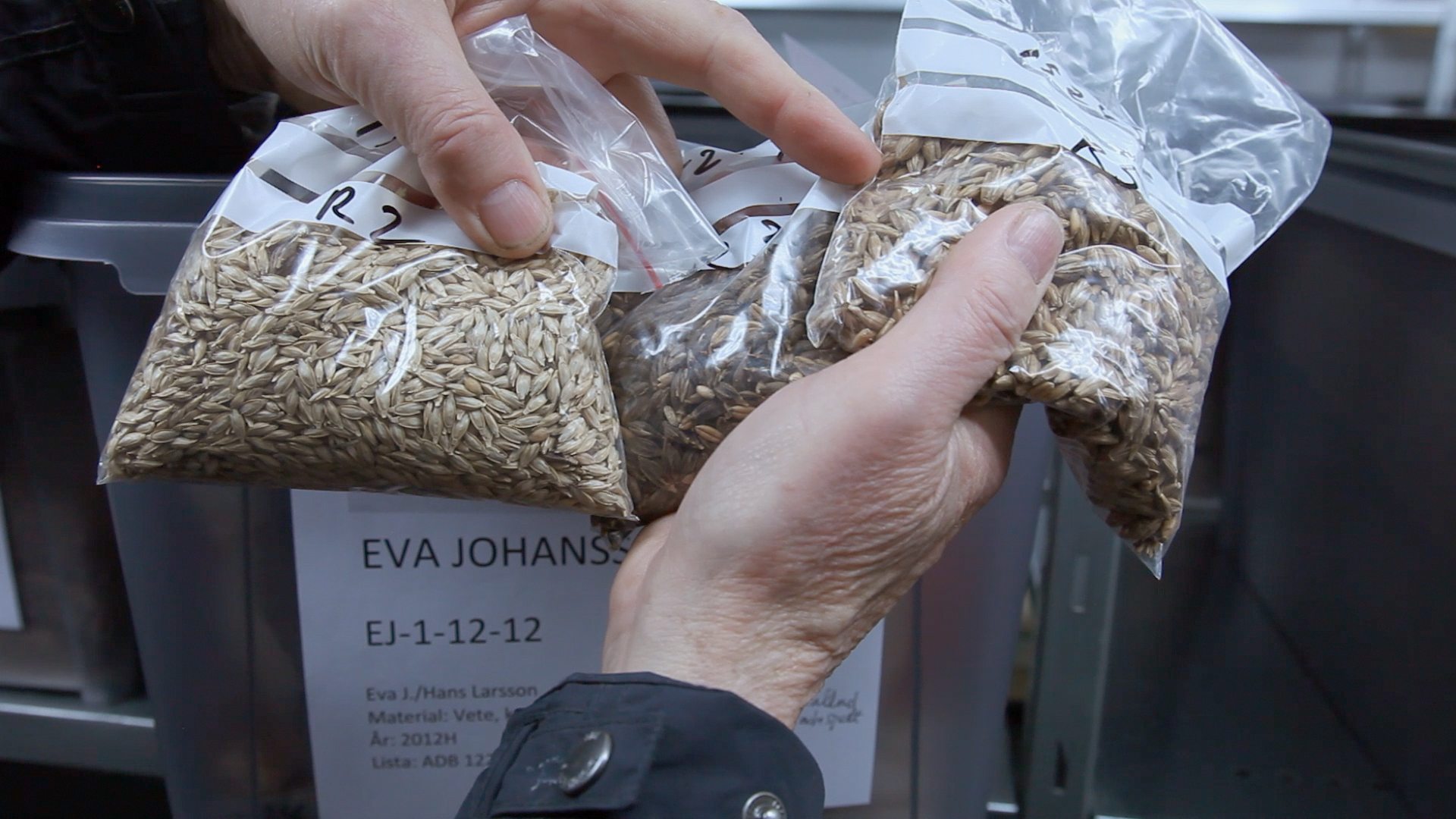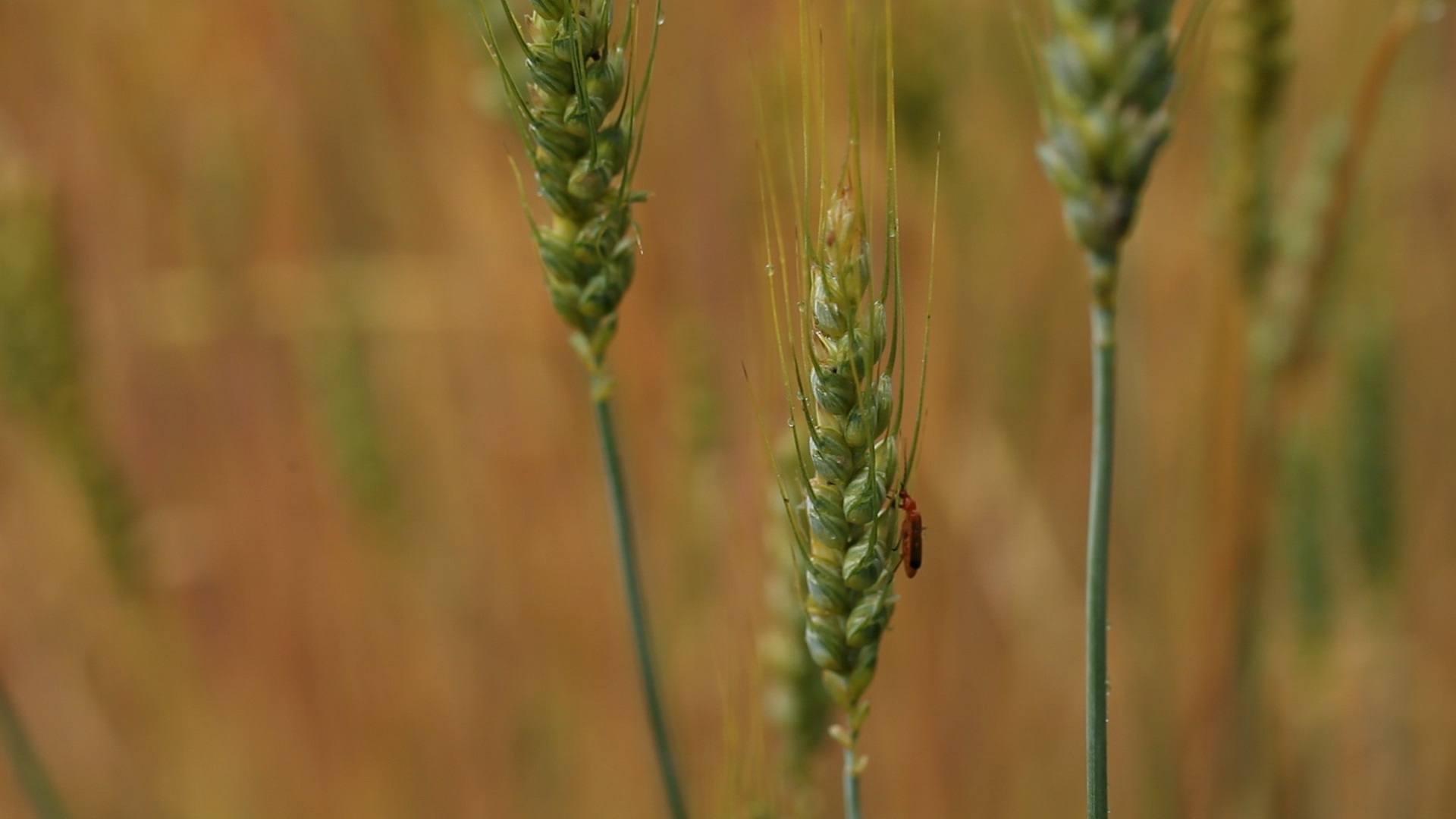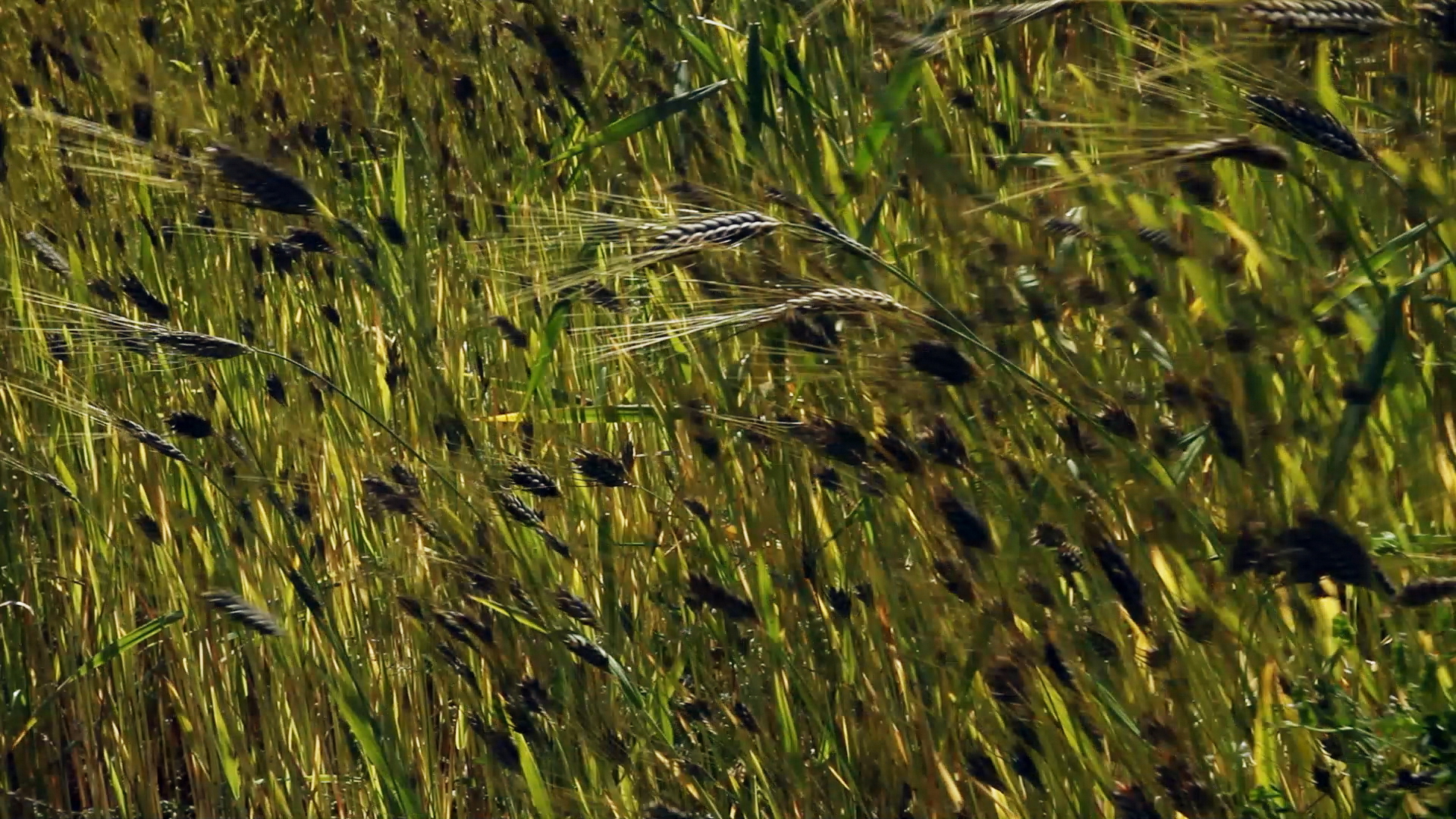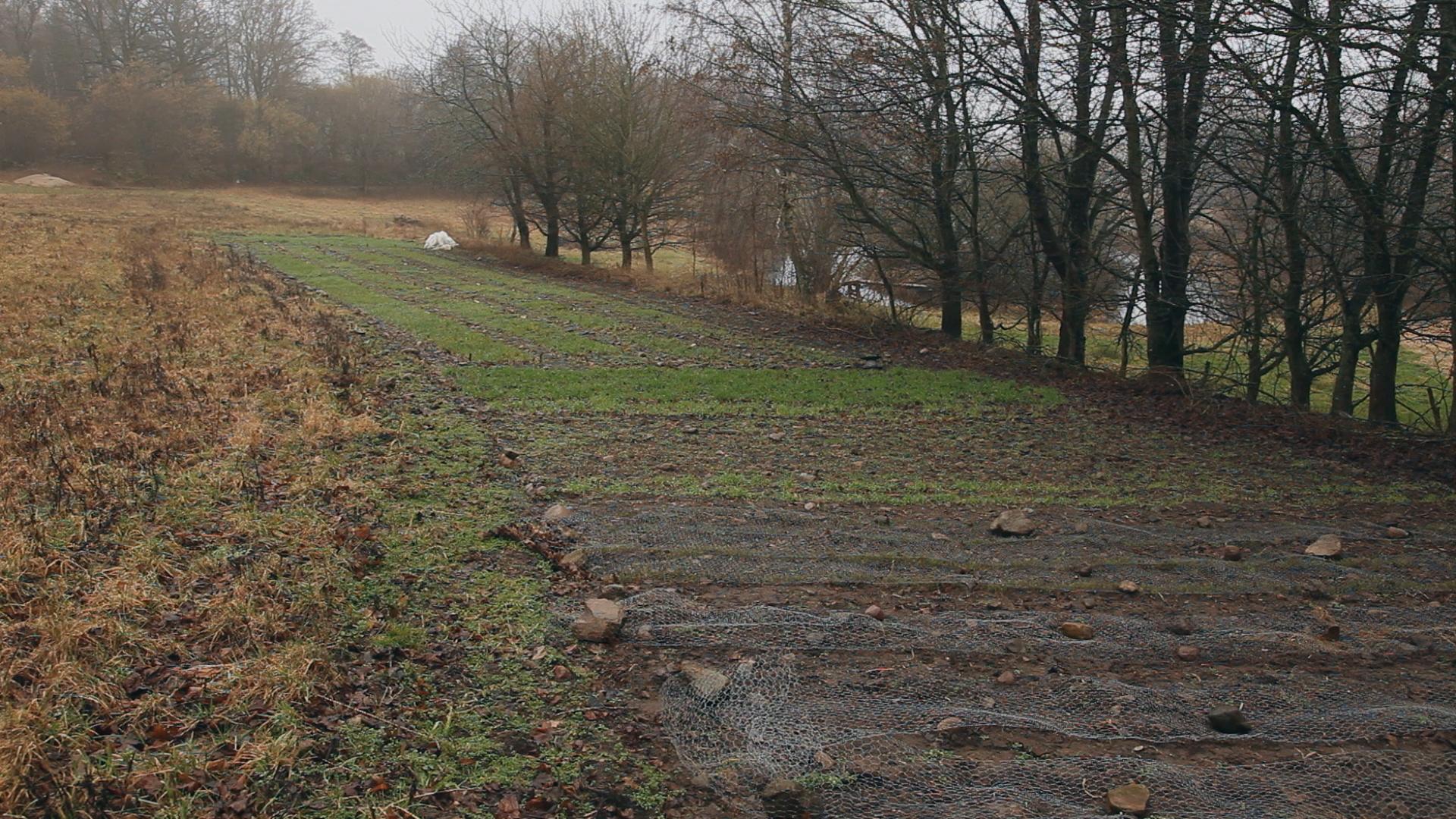Cultivating Stories
Cultivating Stories is an enquiry into cultures of cultivated plants. Through guided field walks, film screenings, public talks, music and an exhibition, Cultivating Stories opens for questions regarding what humans’ relations to cultivated plants are, have been, and could become.
During the summer of 2022, Cultivating Stories was carried out as an interdisciplinary program series taking place by cultivated grainfields in Häglinge and at Malmö Art Museum, South Sweden.
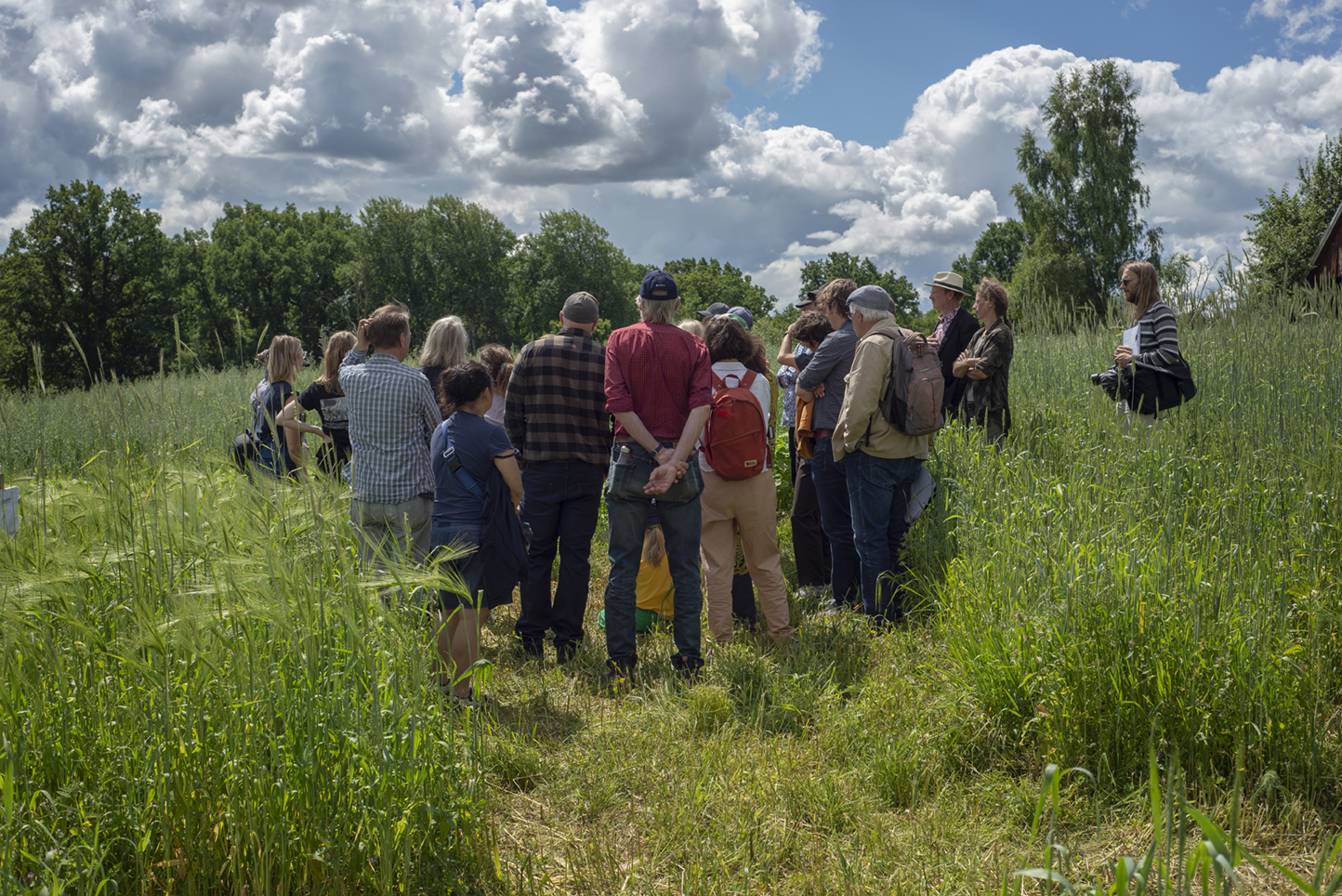

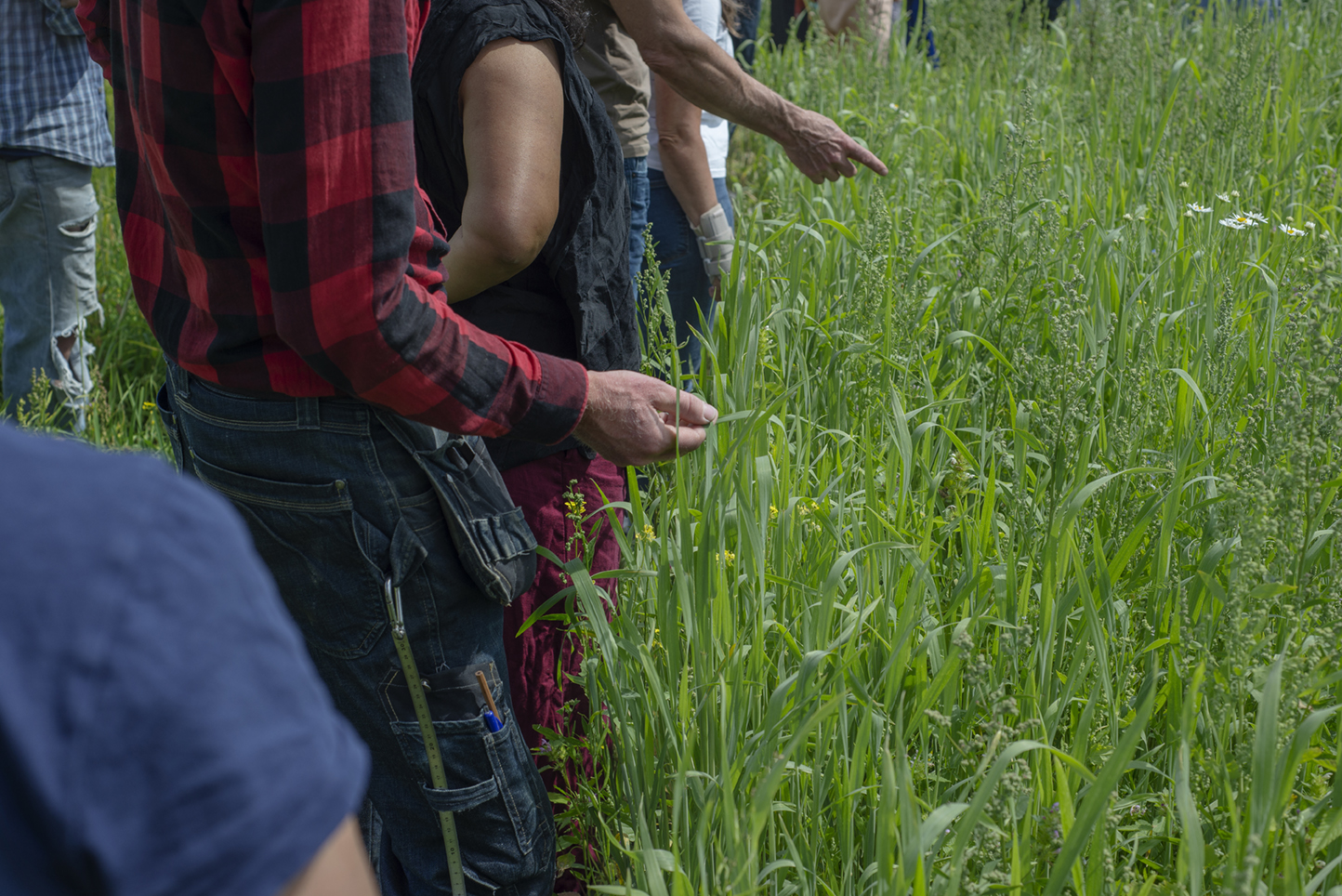

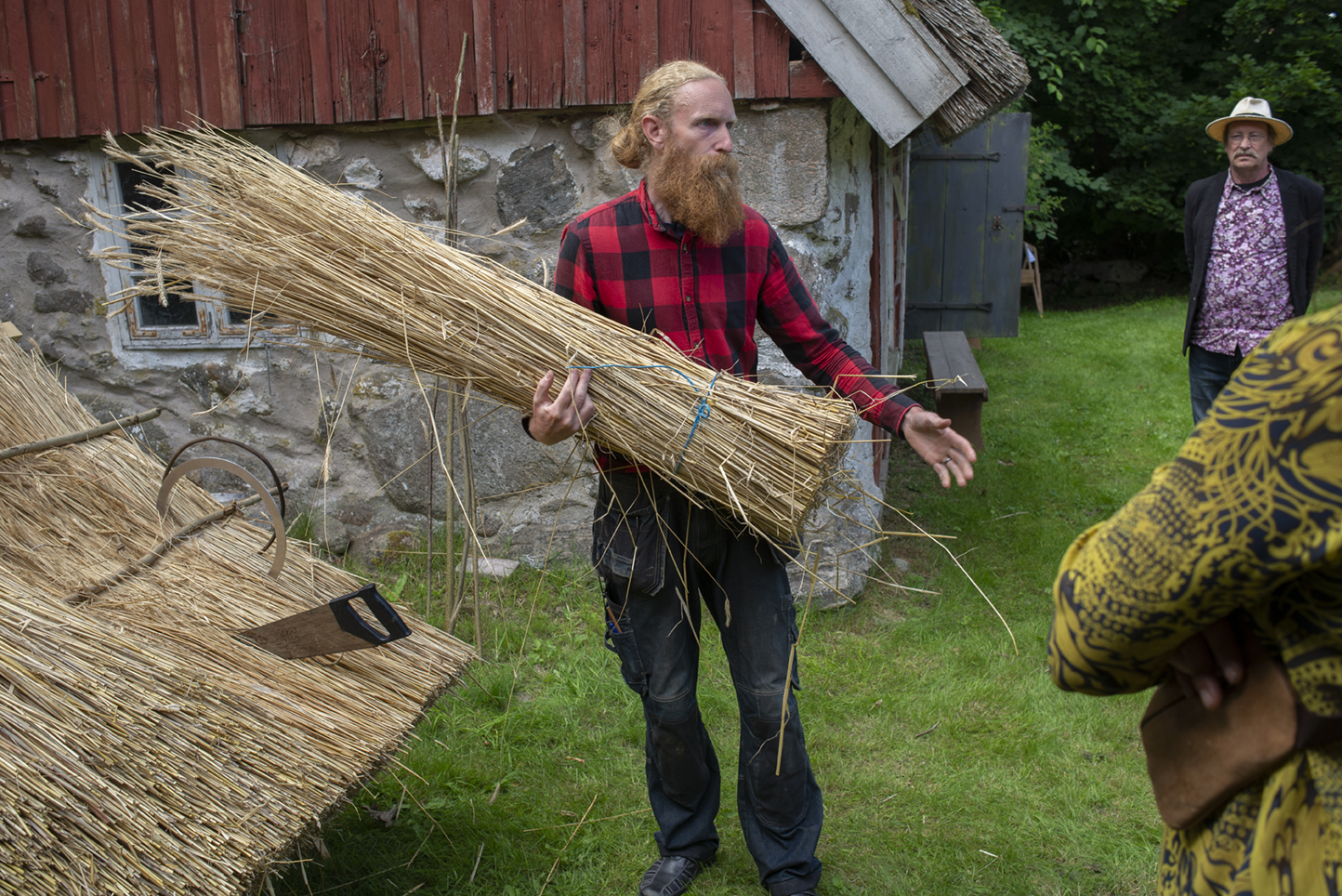
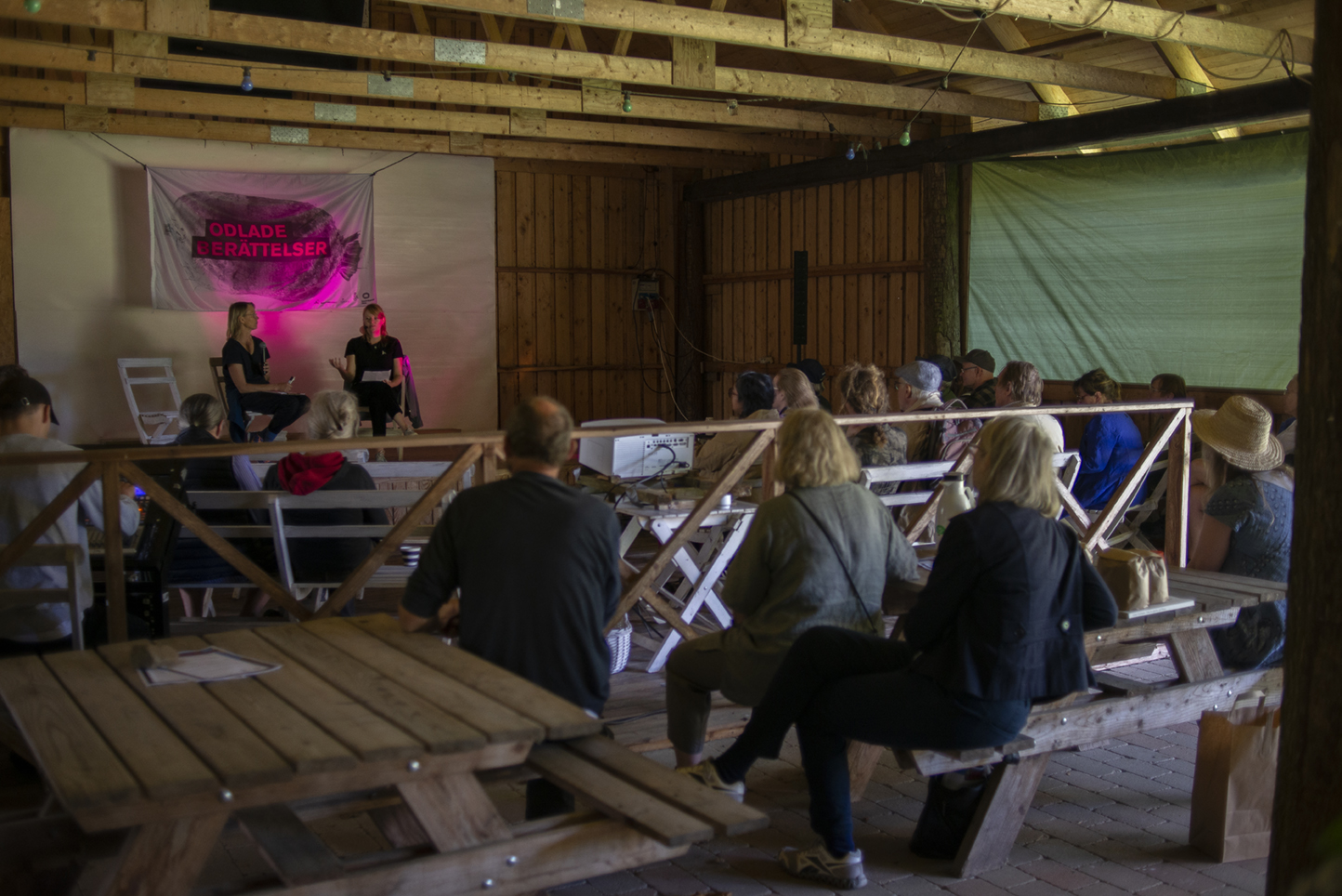


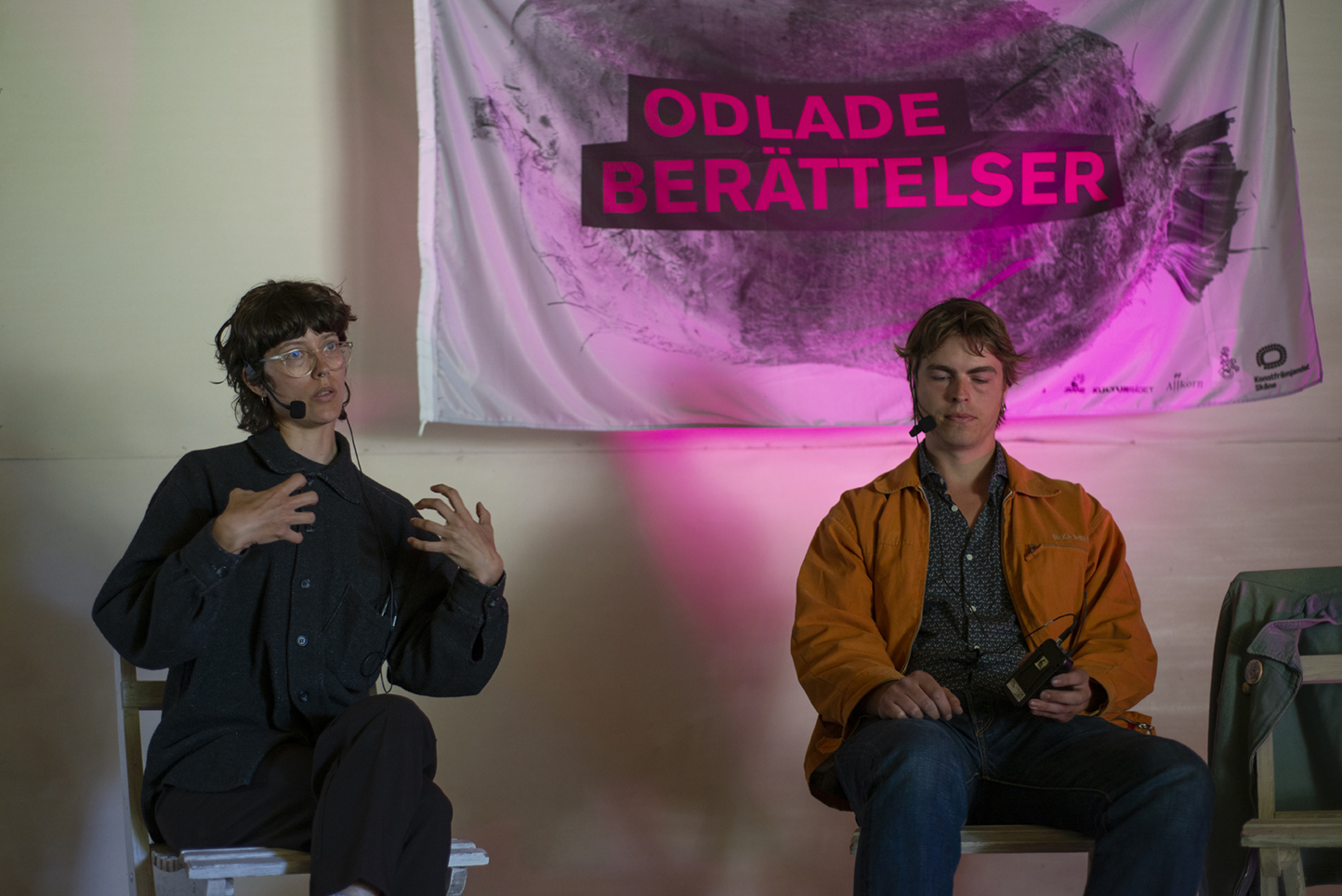


July 10, 2023. Kopparsmedjan, Häglinge. A full-day program with guided field walks, film screenings, music, and public conversations. Coffee, drinks, snacks, and meals are served. A shuttle bus brings the visitors to and from the train station of Sösdala.
About the contributors:
Allkorn. The association Allkorn (Common Grains) is since 2004 promoting the cultivation and breeding of locally adapted cereal varieties and other grains for organic cultivation.
Hans Larsson is a plant breeder who practices participatory and evolutionary methods. In 2004, Larsson initiated the association Allkorn, which today has more than 450 members. With base at the Swedish University of Agricultural Sciences in Alnarp and in collaboration with farmers, Larsson has since the 1990s propagated and bred a variety of locally adapted grain varieties suitable for organic farming.
NOrdBruk is a peasant organization in Sweden working for food sovereignty, sustainable management of the natural resources, and human rights. NOrdBruk is a member of the international peasant movement La Via Campesina.
Seeds Workgroup, The European Coordination Via Campesina (ECVC) is a European grassroots organization which currently gathers 31 national and regional farmer-, farmworker- and rural organizations based in 21 European countries. ECVC is the regional member of La Vía Campesina, the largest international peasant movement.
Mats Edén is a folk musician on violin and melodeon, and a composer. Since the 1970s, Edén is a prominent figure in the folk music movement in Sweden. Edén will play and tell about how folk music during the national romanticism was brought into the bourgeoisie salons, where it was mainstreamed in a way that can be associated with how the cultivated crops have been adapted to the agriculture-, and food processing-industry.
Åsa Sonjasdotter is an artist and researcher engaging in processes for the rehabilitation and re-narration of livelihood relations. Her film Cultivating Abundance inquires cultures of cultivation and breeding of plants.
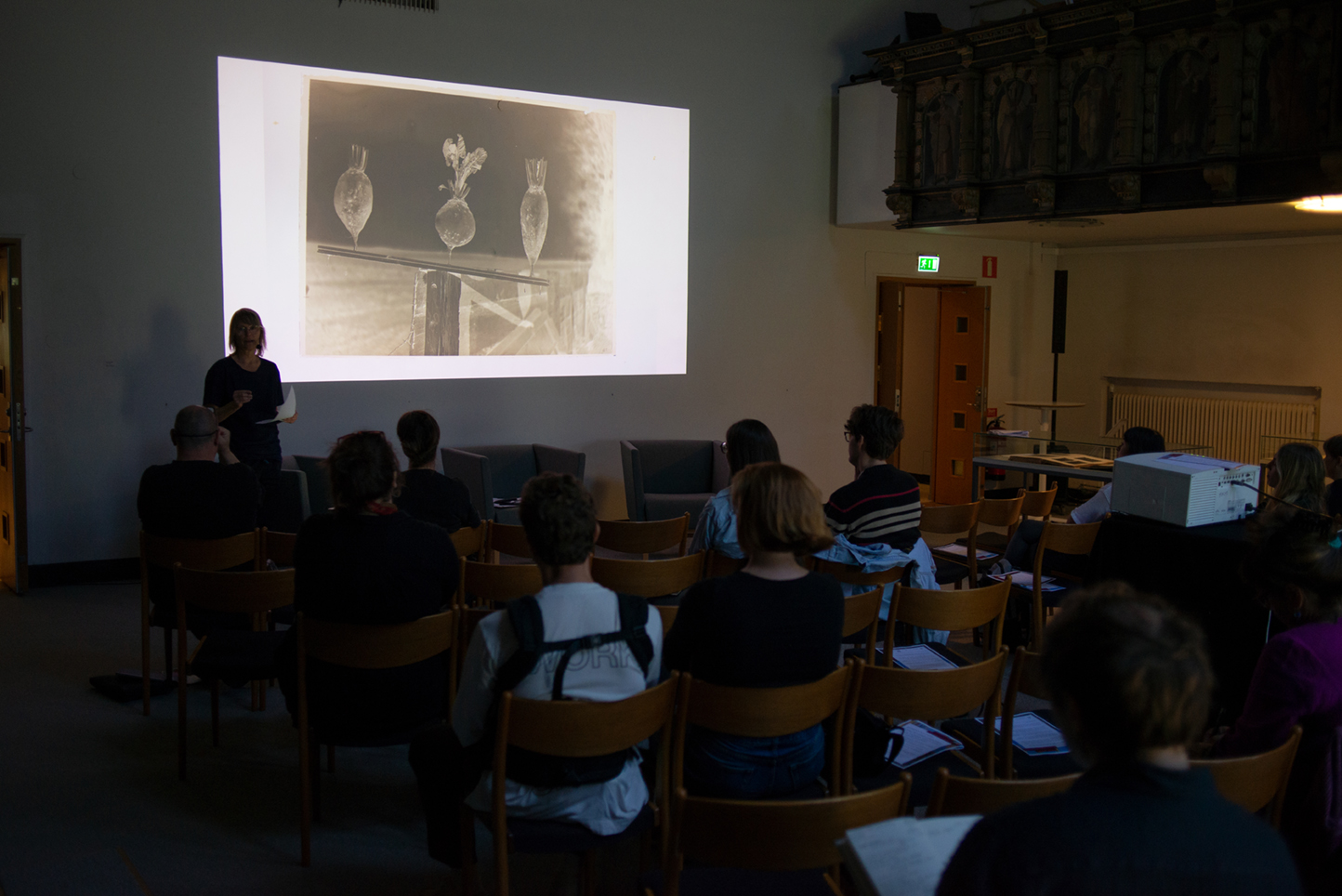

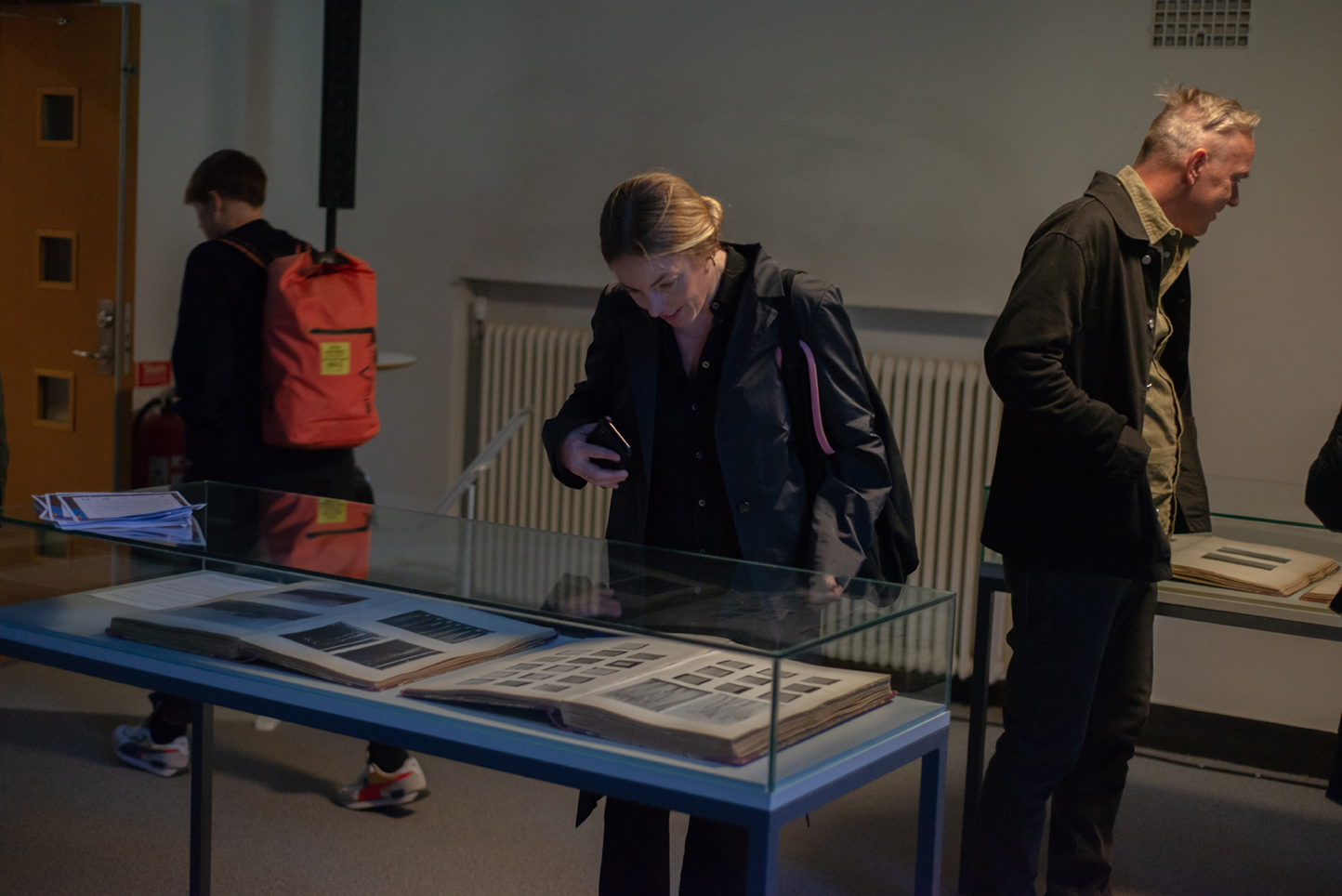


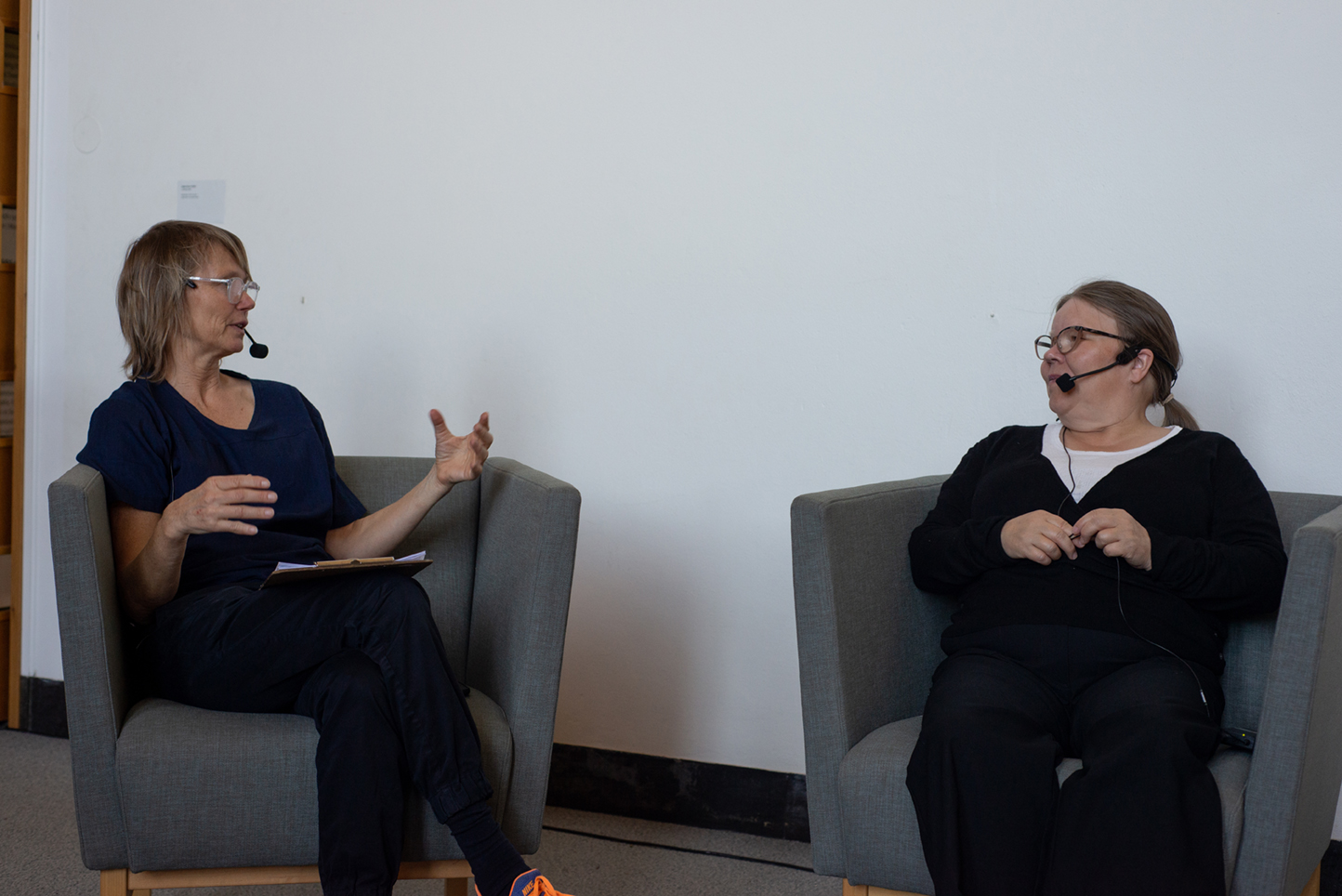

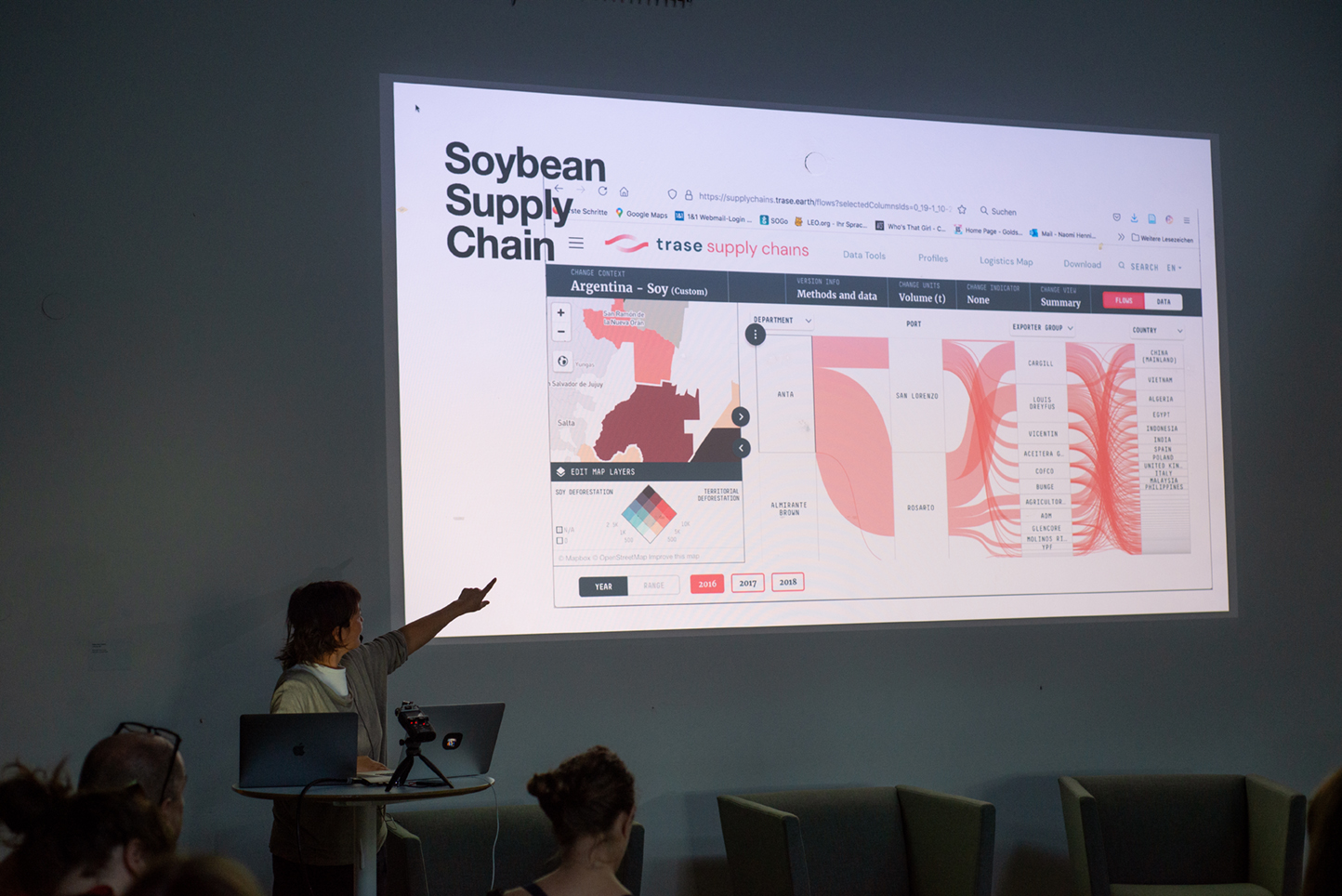
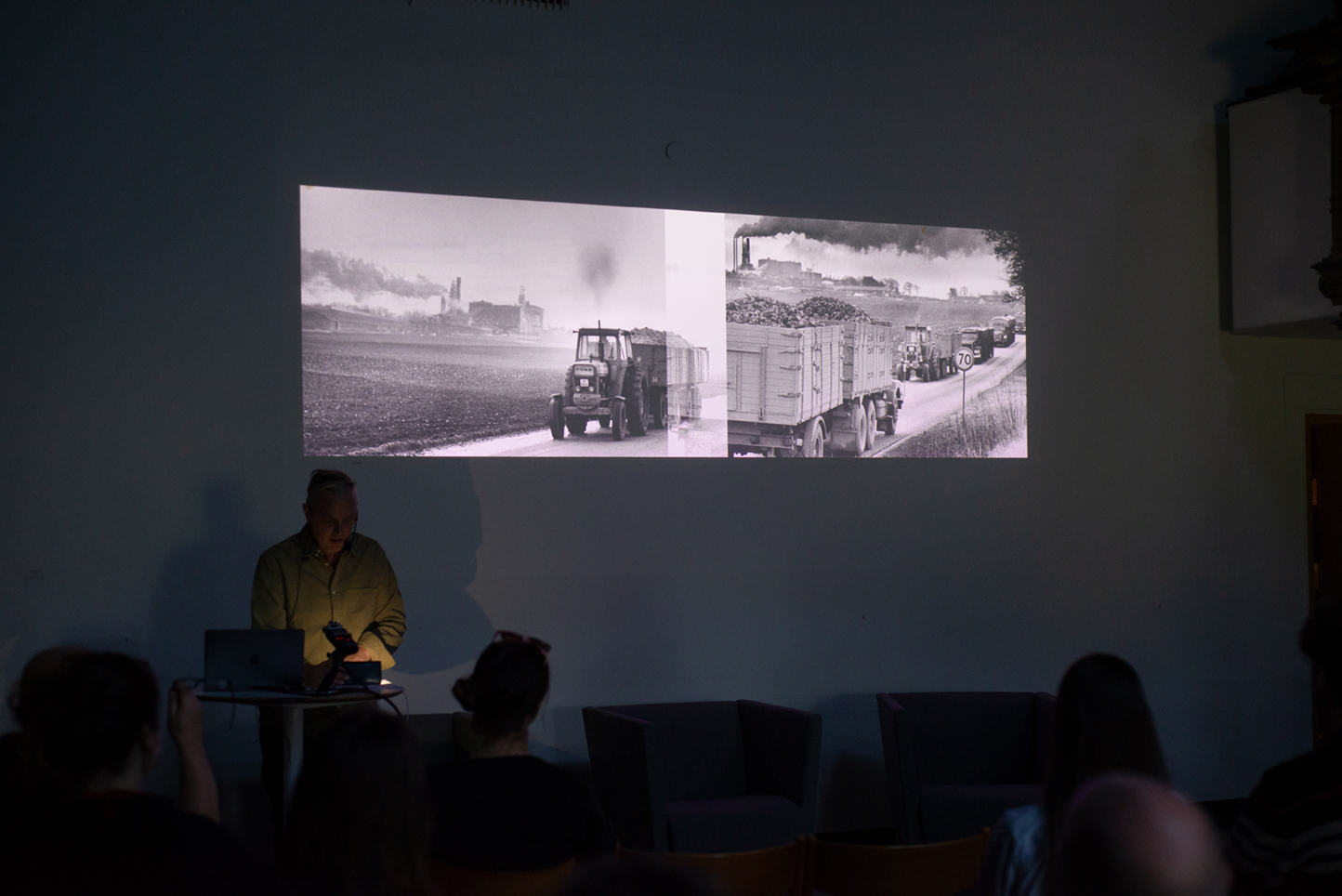
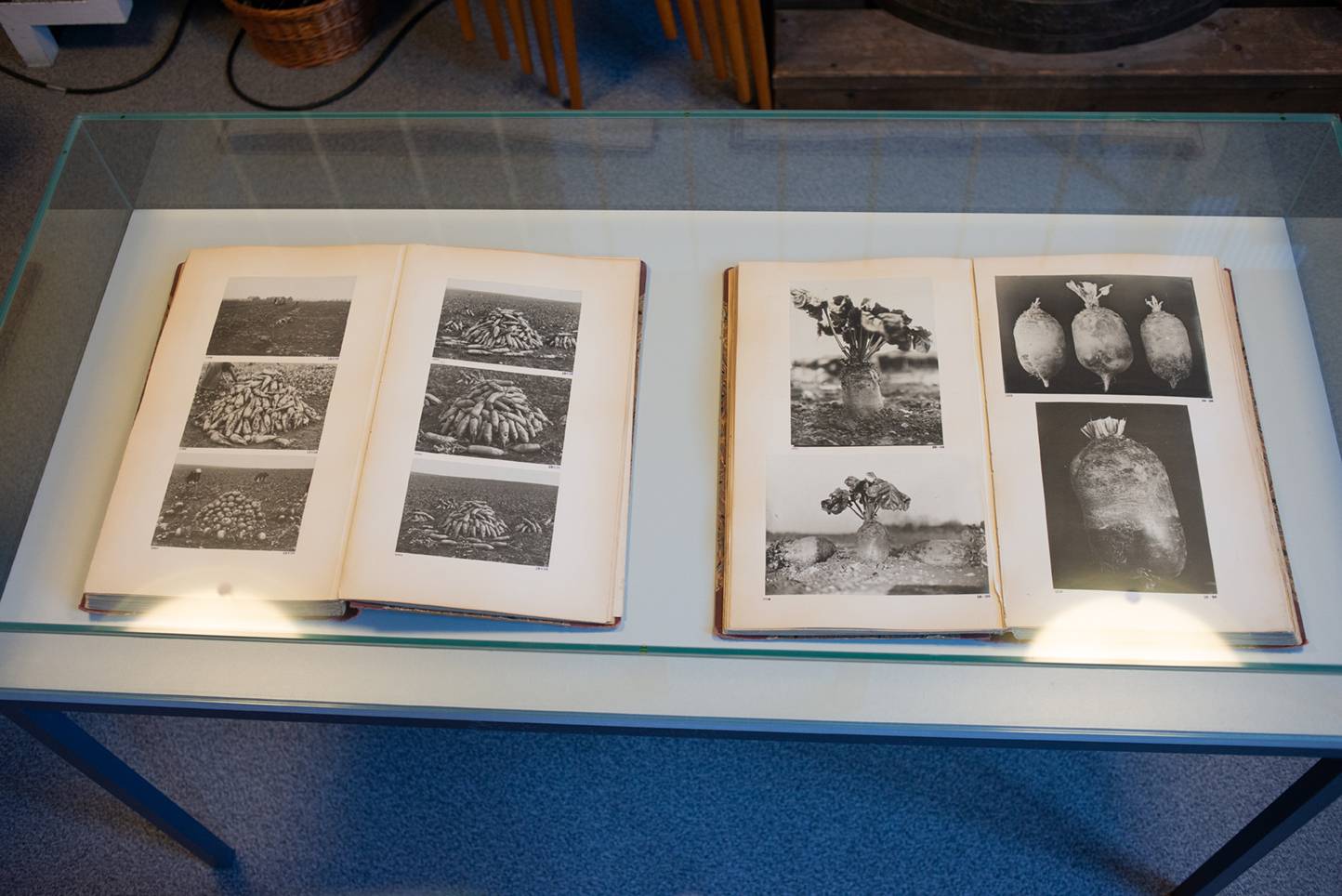
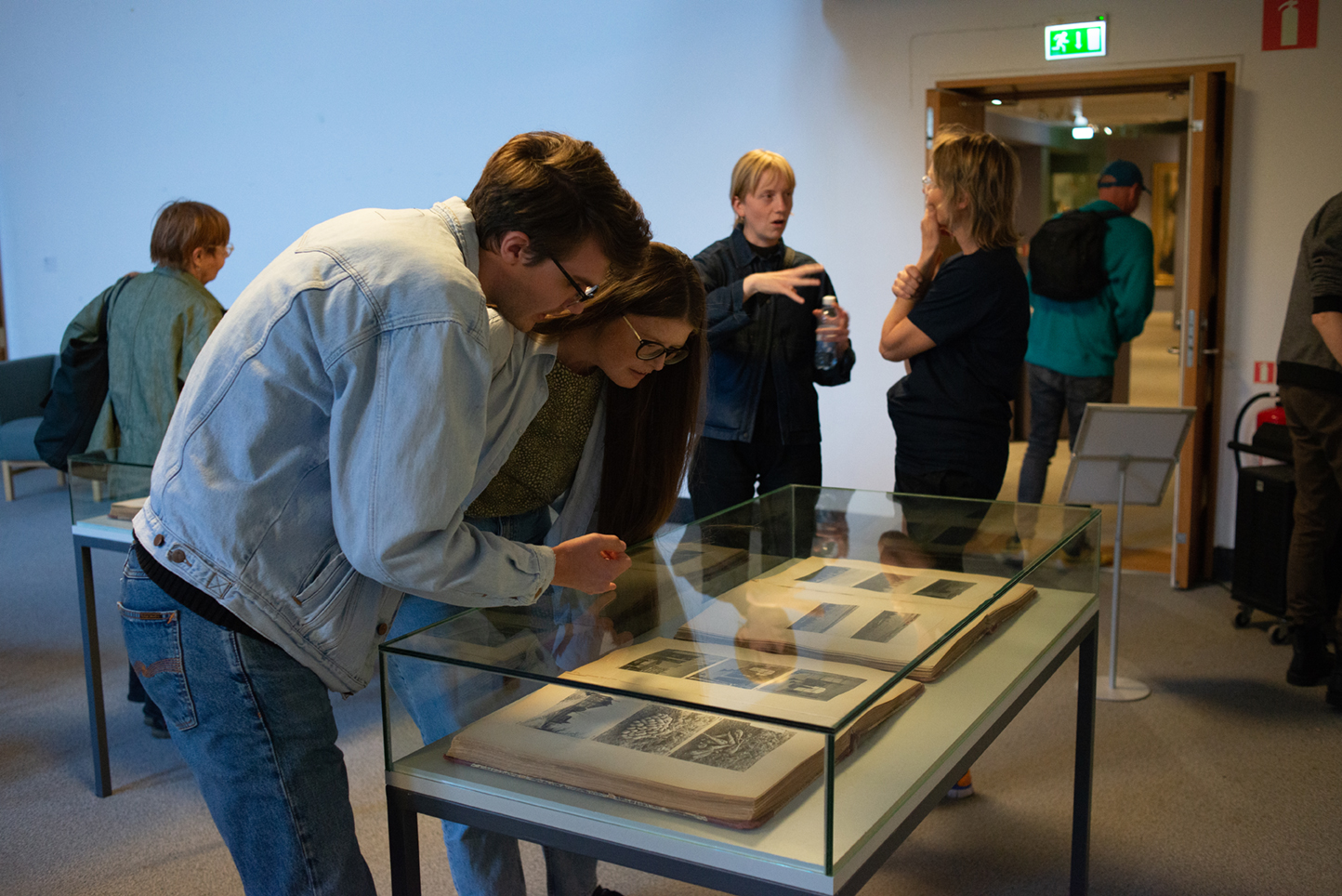
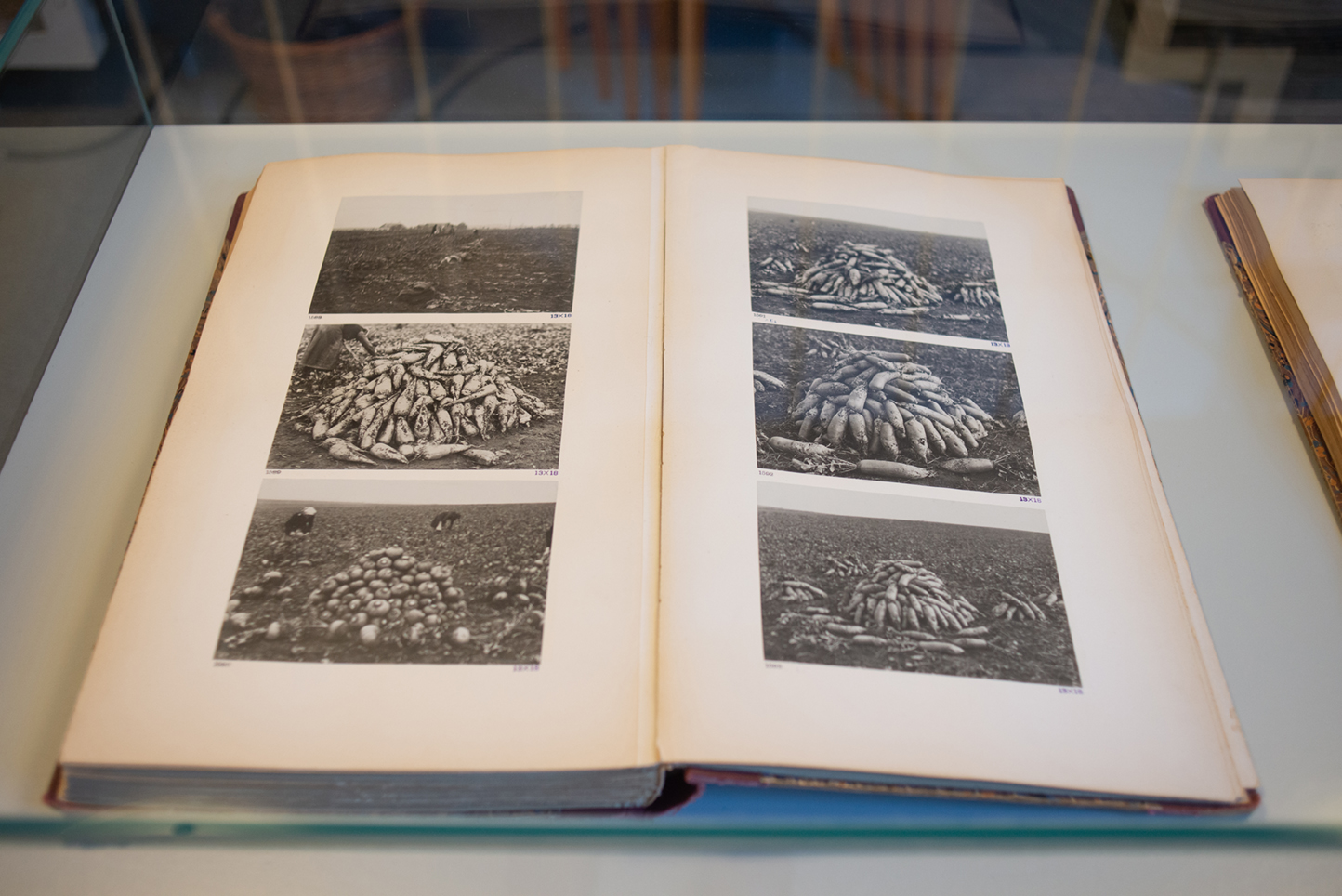


September 15, 17, and 18, 2023. Malmö Art Museum and Häglinge. A three-day in-debt program where questions of crops and cultivation are brought into their broader socio-political scope through the format of film screenings, public talks, debates, an exhibition, and a guided field walk.
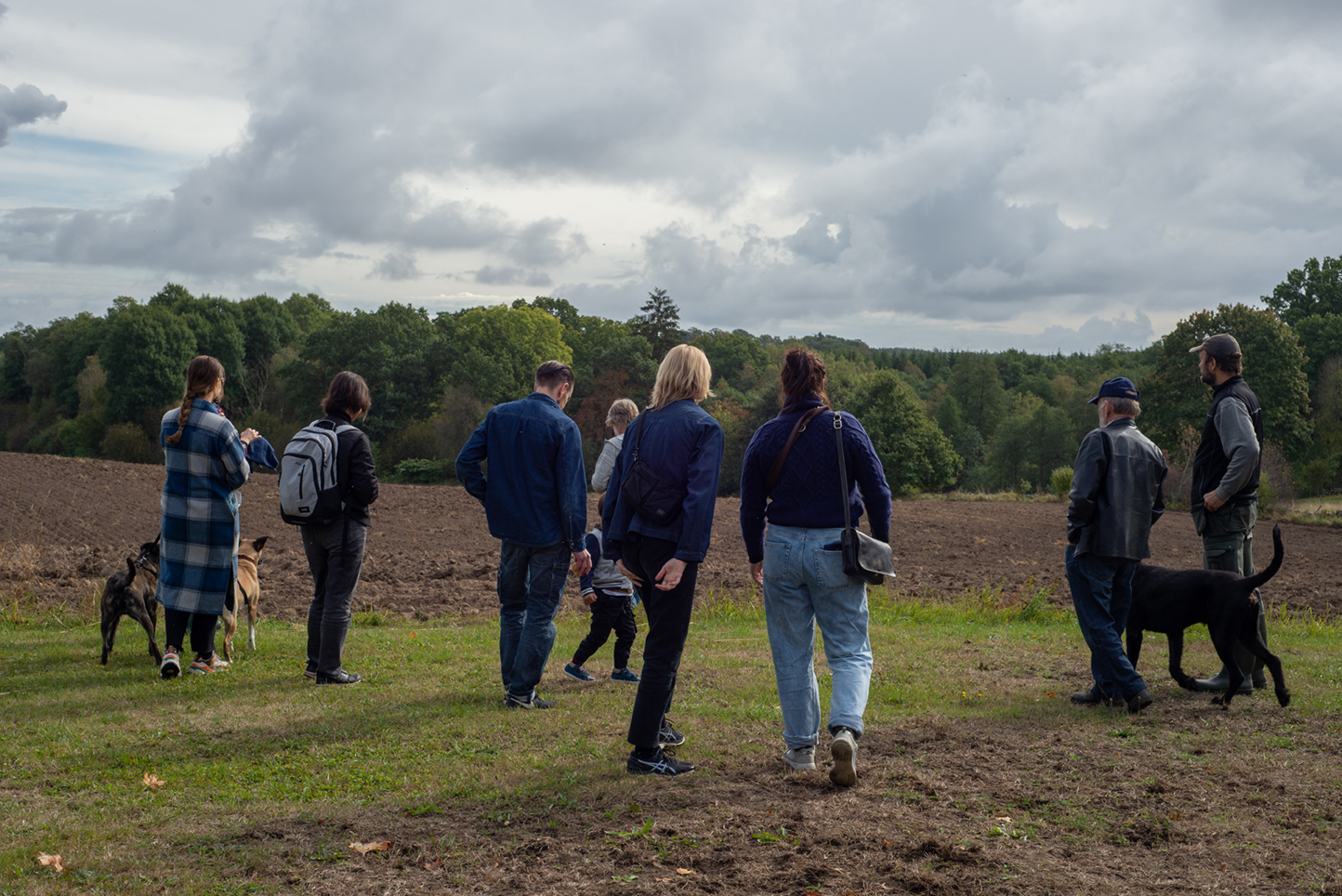

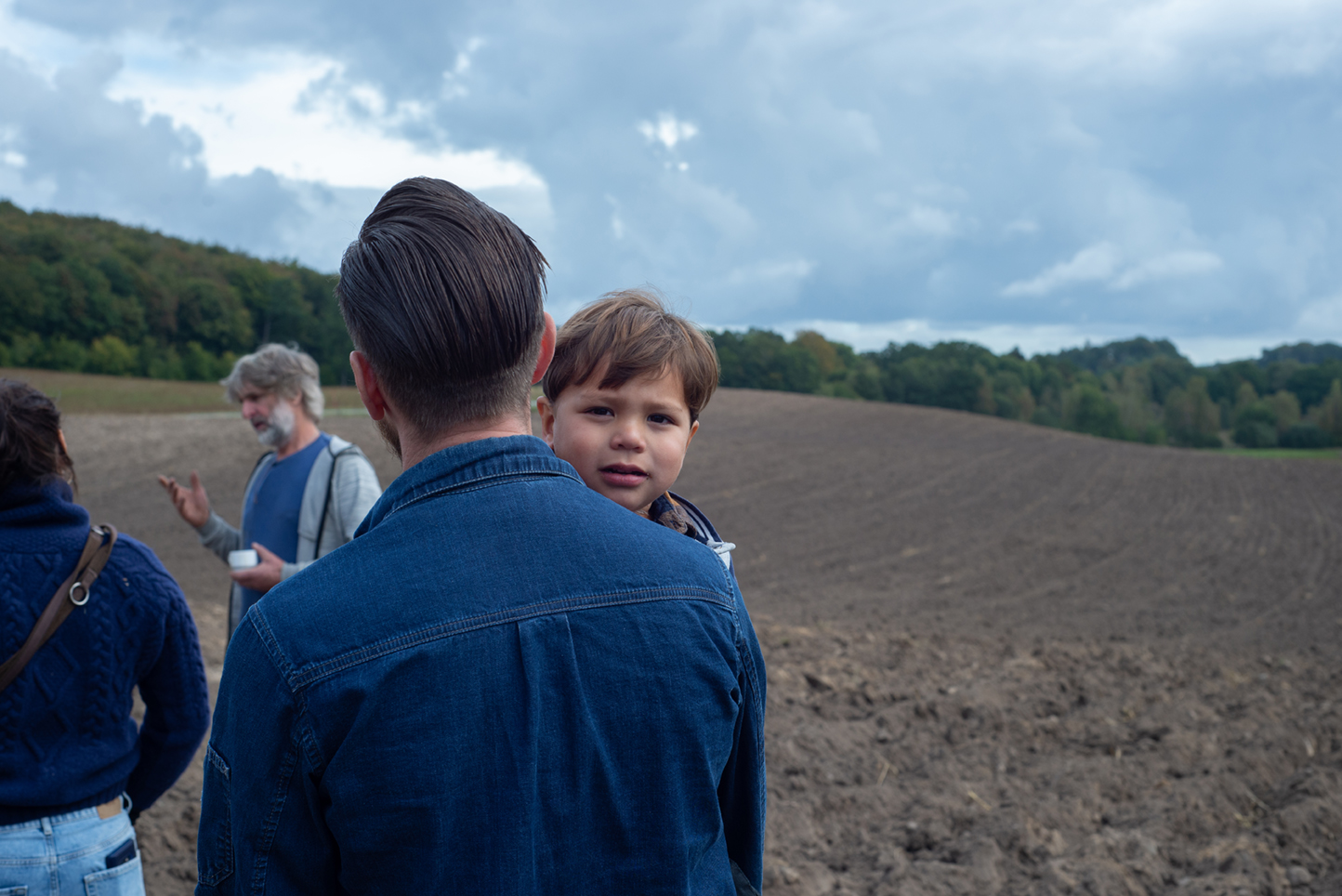
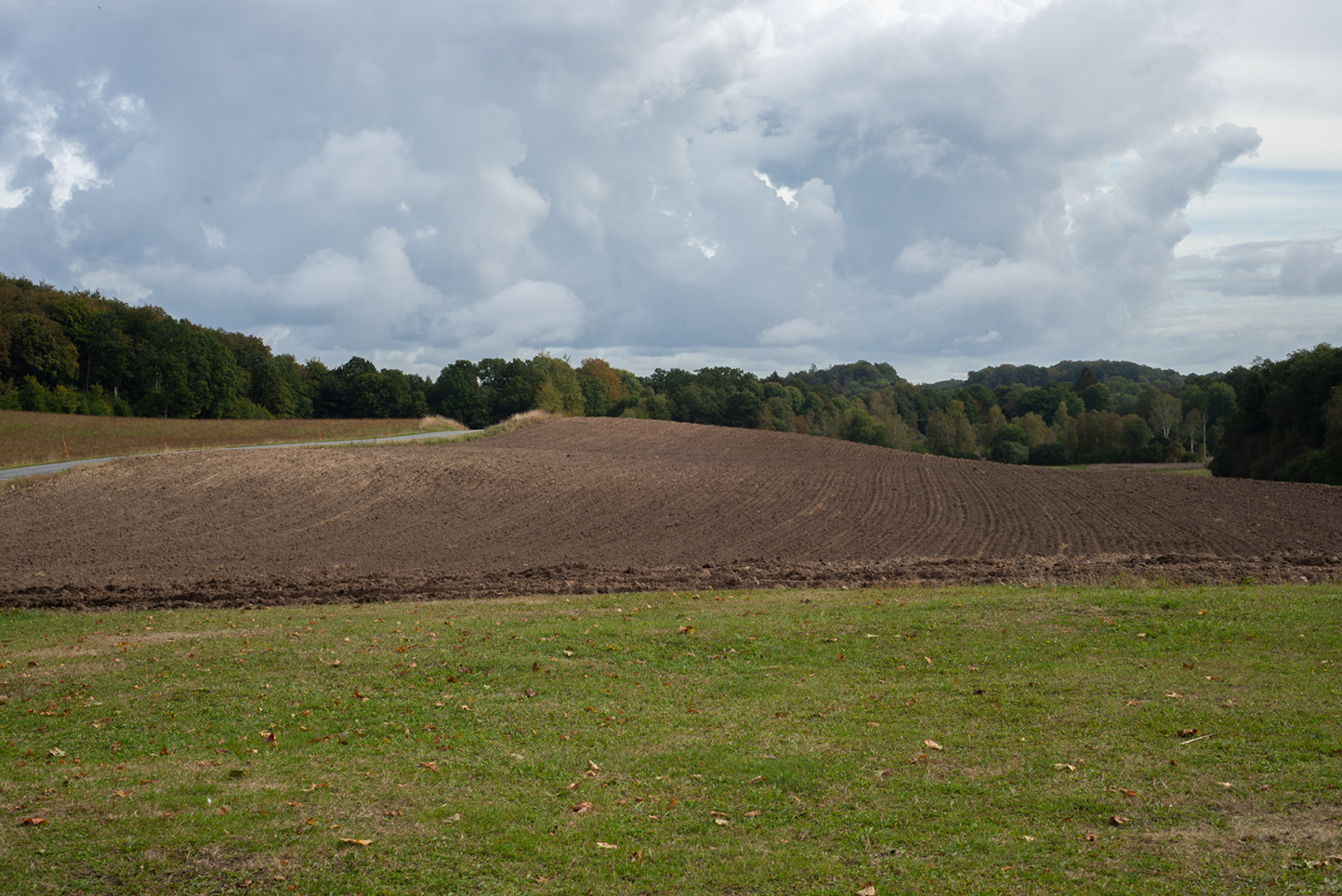
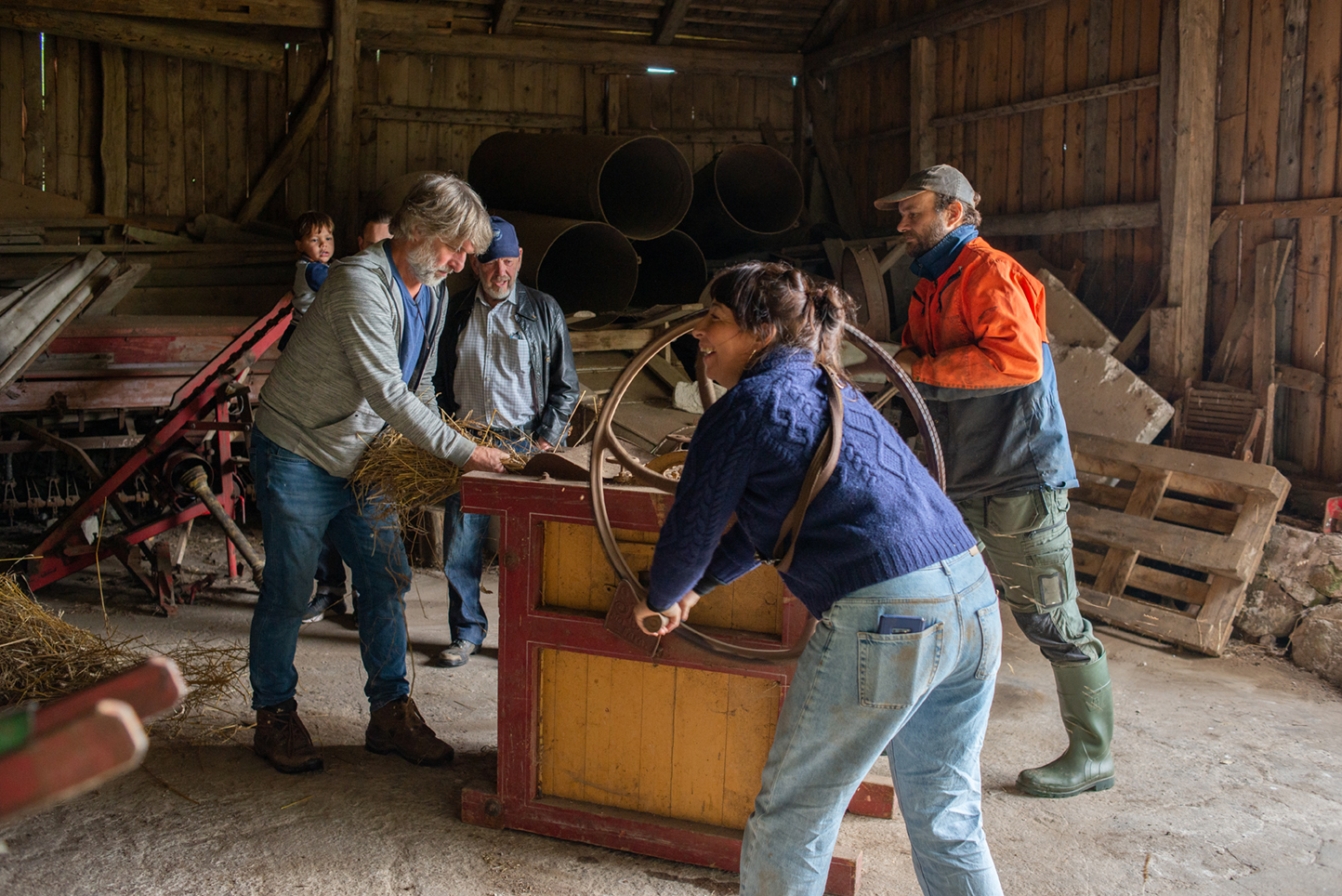

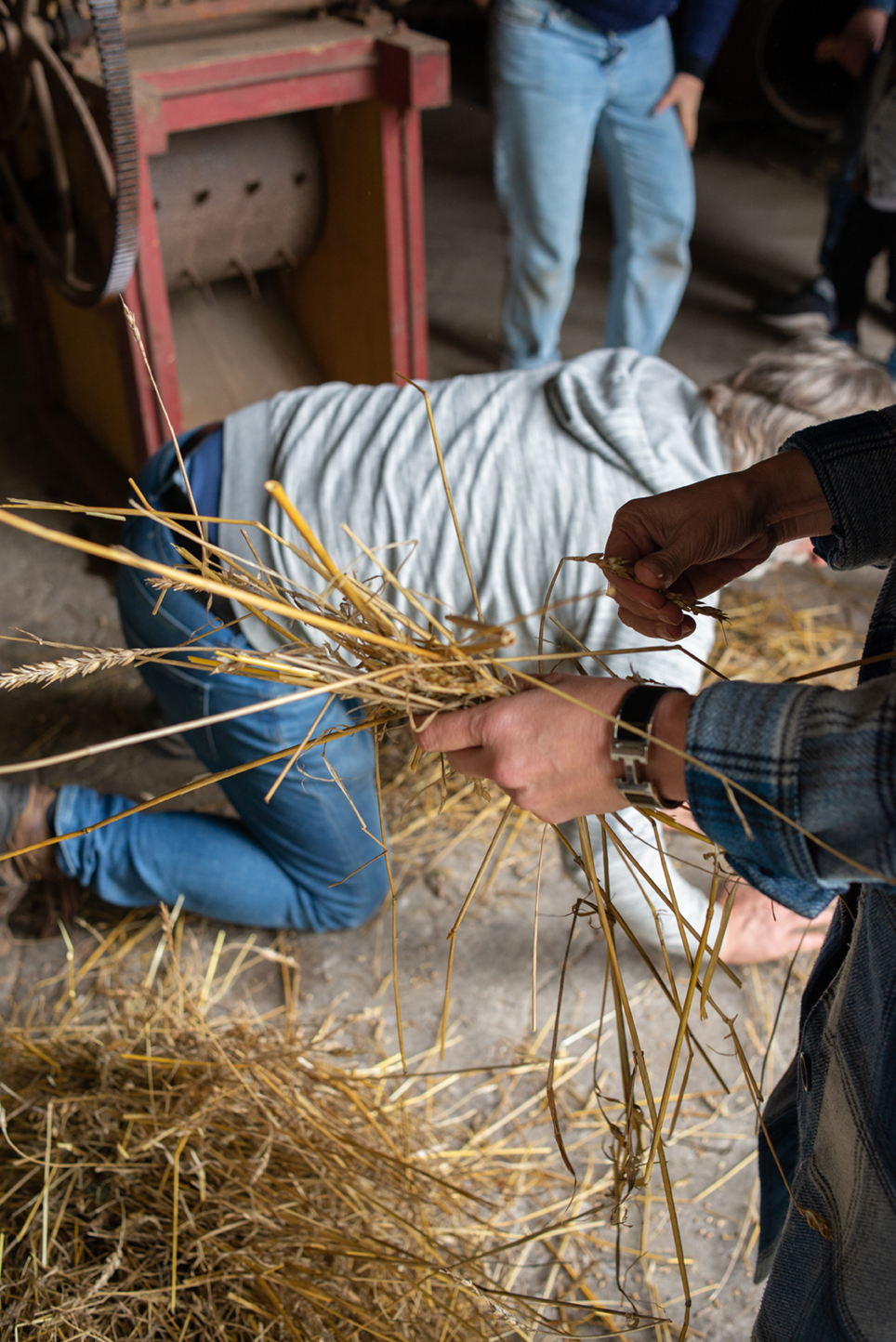


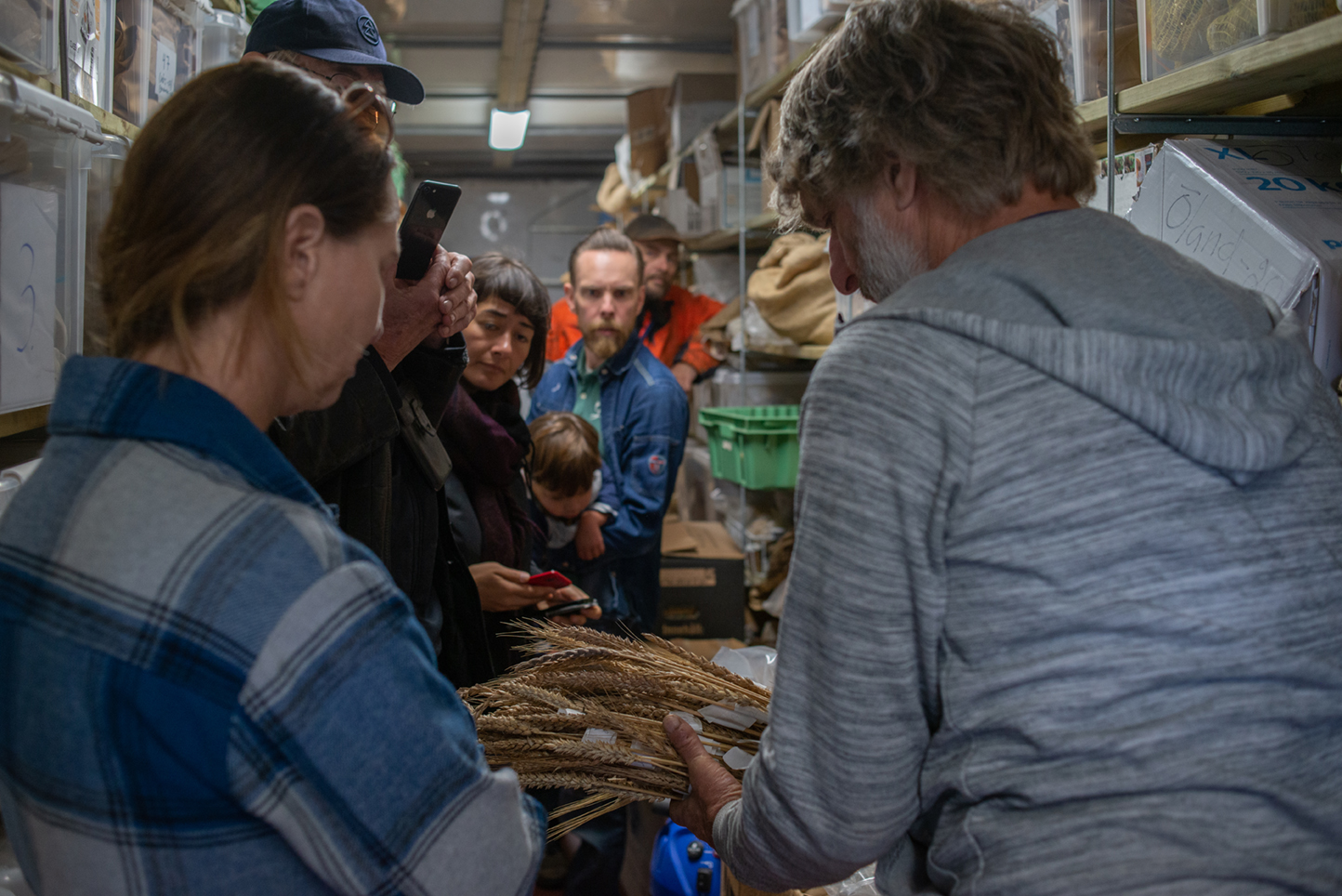


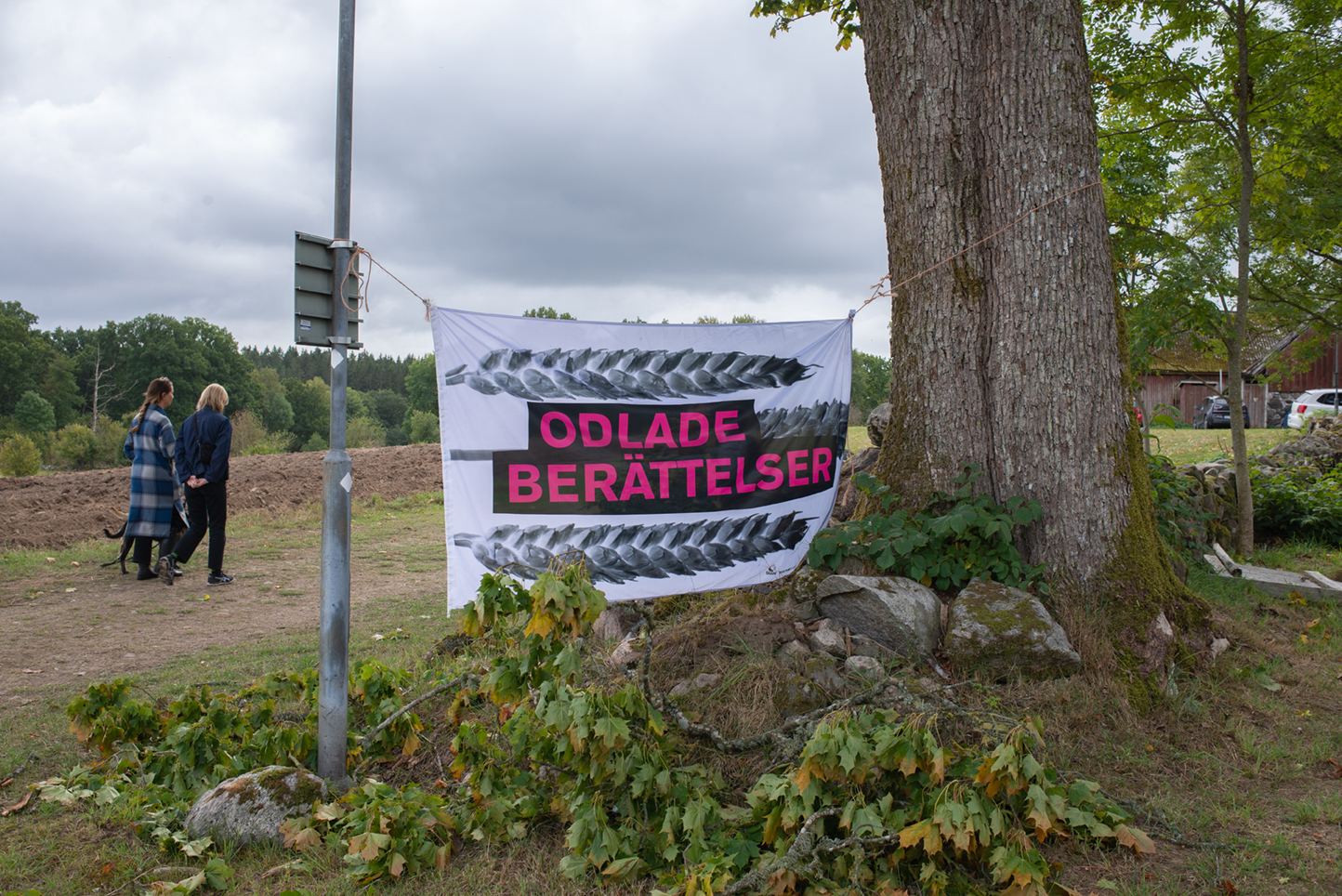


About the contributors:
Kalle Brolin is an artist and a writer. He works with video installation and performance, in research-based and large scale projects. Kalle Brolin is one of the initiators of the solarpowered socialist outdoor cinema, The Sunshine Socialist Cinema. Brolin will present a new series of works enquiring the effect upon the inner and outer landscape of Scania (Skåne) in Sweden from two industries; coal mining and sugar factories.
15th Garden. The 15th Garden is a bottom-up network of urban gardens in cities that have been bombed, besieged and blocked in Syria. The network includes family gardens, farmers in rural areas, and agriculture initiatives in refugee camps in neighbouring states. The farmers’ movement with its practical skills is ready to stand by all the people who are affected by the war.
Naomi Hennig works as researcher, artist, curator, editor, and project coordinator. Henning is a doctoral candidate at Goldsmiths, University of London, researching agriculture and extractivism. Hennig’s current work is informed by an interest in political ecology, finance,land-use and accumulation in rural and urban contexts.
Hans Larsson is a plant breeder who practices participatory and evolutionary methods. In 2004, Larsson initiated the association Allkorn, which today has more than 450 members. With base at the Swedish University of Agricultural Sciences in Alnarp, and in collaboration with farmers, Larsson has since the 1990s propagated and bred a variety of locally adapted grain varieties suitable for organic farming.
Katarina Pirak Sikku is an artist who mainly works with the techniques of drawing and photography. Many of her works are text-based. In recent years, Pirak Sikku has researched historical studies of race and biology. Pirak Sikku wants to know what happened. The Swedish Institute for Racial Biology conducted a large survey among the Sami. Pirak Sikku takes the other side’s perspective, the one of those studied in the survey. Pirak Sikku wants to make the story her own, move from being an object to becoming a subject. Pirak Sikku’s work often deals with grief, identity, power and ethnicity.
Åsa Sonjasdotter is an artist and researcher engaging in processes for the rehabilitation and re-narration of livelihood relations. Through cultivation of marginalised crops and close readings of related archival matter, lost knowledge and imagination is brought into re-existence.
Mick Wilson is an artist, educator and researcher based in Gothenburg and Dublin. He is Professor of Art and Director of Doctoral Studies at HDK-Valand, the University of Gothenburg. Wilson’s research includes; constructions of ‘public-ness’ and the ‘social’ with respect to the contemporary art field; hibition-making as enquiry; and the aesthetic politics of foodways.
Cultivating Stories follows the rhythms of grains and takes place where they grow. During the first half of July, the heads of the straws are ripe, and various varieties’ particularities are at their utmost visibility. In September, the fields are harvested, and the straw is tied up on sheaves. The grains are ready to be threshed and ground into flour. It’s soon time for sowing next years’ harvest.
Cultivating Stories is a collaboration between the association Allkorn, the organisation potatoes’ perspective, the People’s Movement for Art Promotion (Konstfrämjandet Skåne), and Malmö Art Museum. Cultivating Stories is funded by the Swedish Arts Council and Region Scania.
More about the program. Central to the program Cultivating Stories, is the presentation of a unique series of photographs documenting early plant breeding experiments at the Swedish Seed Association in Svalöv from 1886 onward. The photographs give an insight into the material processes by which monoculture farming was formed, and by which modern biopolitical ideals would become activated. Revisiting this decisive moment opens for a regained understanding of the incentives by which the monoculture farming industry as well as further aspects of modern culture today have gained global scope.
The breeding method invented by the
in Svalöv was by their own terms a ‘total reversal of the old understanding’. Instead of saving selected seeds, which since ancient times had been understood as a slow, ongoing process of adaptation and refinement, the breeders worked towards ‘recognizing and controlling the uniformity’ of already existing properties in the seeds. The breeders abandoned the traditional understanding by which all living beings always are in motion. Instead, ideals were formed in resonance with theories based on hereditary laws. To make real these theories, selected plants were inbred in several generations until so-called ‘pure lines’ emerged, and by which genetic ‘contaminants’ were removed. From these lines, ‘original elite varieties’ were produced, by which ‘the harvest gained greater sales value’.
This reversed method brought tangible results that would have a major impact, also trans-nationally. The invention of monoculture breeding delivered proof to arguments regarding biopolitical currents in times of colonialism, striving for hygienisation and purification towards a modernisation of lifeforms. In 1922, the State Institute for Racial Biology was opened in Uppsala, motivated by the achievements at the Swedish Seed Association. Both these institutions would become models for the establishment of corresponding institutional complexes in further countries. The institutionalisation of theories and practices of genetic hygiene would further inform political incentives for their execution.
The method for establishing uniformity in plants became as well an argument for the existence of ‘originality’ in seeds. Plant breeding industries followed this reasoning when claiming the right to collect royalties on varieties bred by modern methods. These requests were in 1961 gathered into the legal complex of the UPOV Convention (The Convention of the International Union for the Protection of New Varieties of Plants), today activated in 77 nations across the planet. By this legislation, the seed industries of the UPOV define criteria by which ‘original’ varieties are measured and may be used. According to these standards, farmers have no right to save seeds, neither the industries’ ‘original’ varieties, nor traditional ones. The traditional peasant-bred varieties are by this legislation extradited to deep freezers in gene banks, where they serve as a genetic pool by which the industries of the UPOV produce modern varieties.
In response to this infringement of rights, farmers’ and peasants’ organisations have since mobilised to regain the initiative. In the early 1990s, plant breeder Hans Larsson at the Swedish University of Agricultural Sciences in Alnarp, began a long-term process by which the few remaining traditional varieties in the Nordic Gene Bank’s deep freezers were lifted out of their dormancy and brought back to the fields. The grains were systematically test cultivated under close observation. Varieties that seemed robust and thriving in today’s climate were propagated into larger volumes and brought to full-scale field trials on farms. This collaboration between Larsson and farmers is since 2004 taking place within the framework of the association Allkorn.
With Allkorn’s and further organisations’ initiatives for the restitution of traditional plant varieties, social networks for knowledge-exchange and -practice of crops are reconstructed and reinforced. The international peasant movement is organising towards global action and have mobilised several unilateral legal complexes against UPOV’s claims. Central to these is the article 19 of the United Nations Declaration on the Rights of Peasants and Other People Working in Rural Areas 2 (UNDROP). The declaration was adopted in 2018 by the Member States of the United Nations and marks a considerable shift in discourse, as peasantry by this statement, to which traditional seed relations is central, have become defined and recognized as a fundamental basis of food and agricultural production throughout the world. Further central documents by which traditional seeds are protected, are articles 5, 6 and 9.3 of the International Treaty on Plant Genetic Resources for Food and Agriculture (ITPGRFA), negotiated by The Food and Agriculture Organization of the United Nations for an open access to seeds stored in public seed banks, as well as article 31 of the United Nations Declaration on the Rights of Indigenous Peoples.
These and further mobilisations form a global social movement by which human and more-than-human relations to cultivation and food production are reformulated. The program Cultivating Stories opens to connect the specific historical events of the region with the translocal conversation regarding how these relations have, are, and can be articulated and activated. By Åsa Sonjasdotter, 2022.
-> Further info
Photograpic documentation: Matilda Maester. 2022.
Cultivating Stories, Bergen Assembly, Norway, 2019. Installation in three parts: photographic reproductions documenting the industrialisation of ‘pure line’ plant breeding, the cultivation of traditionally bred grains, and a film on organic, participatory grain breeding.
Film on organic, participatory grain breeding. 34 minutes. In dialogue with agronomist Hans Larsson, Sweden. More about the film →
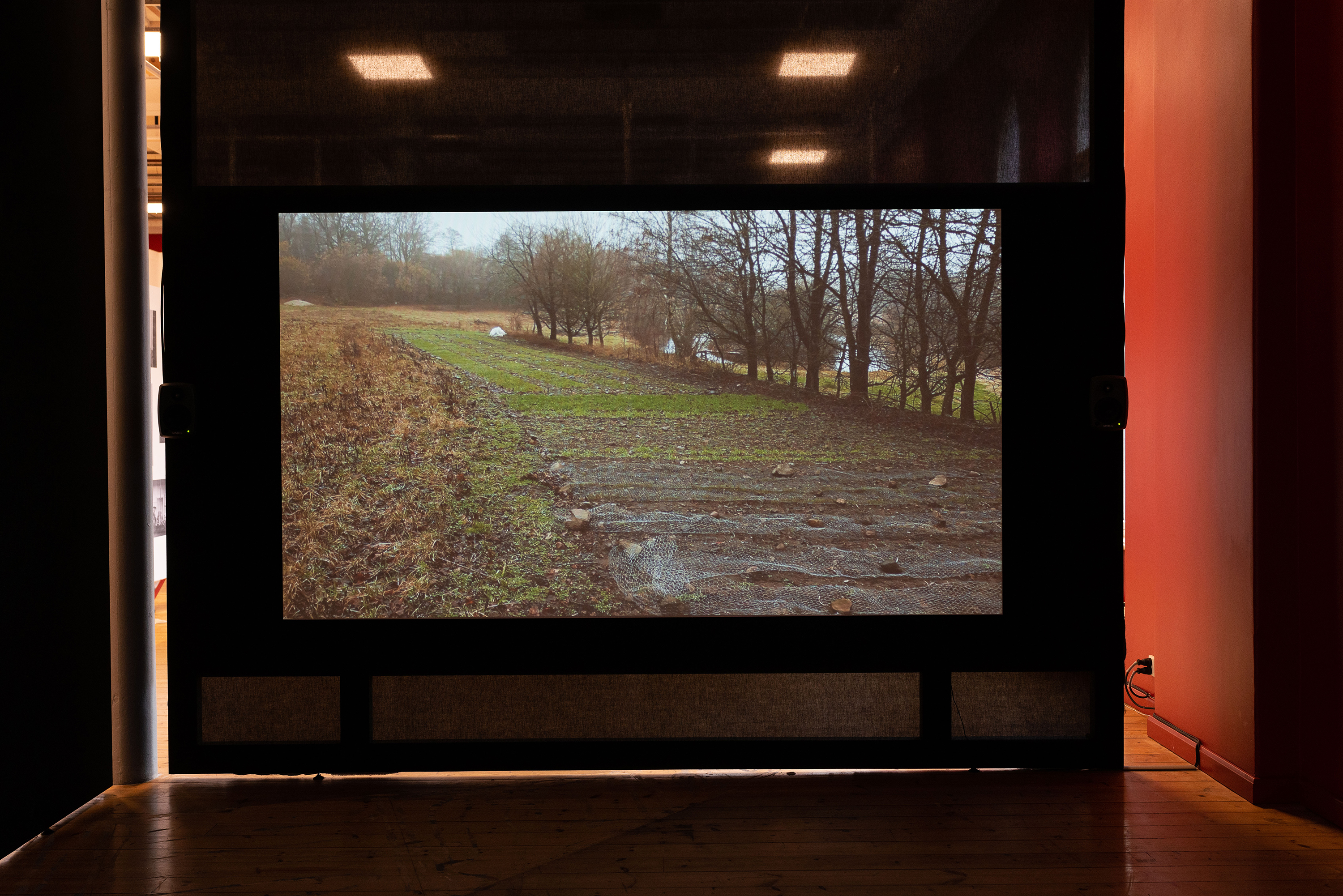
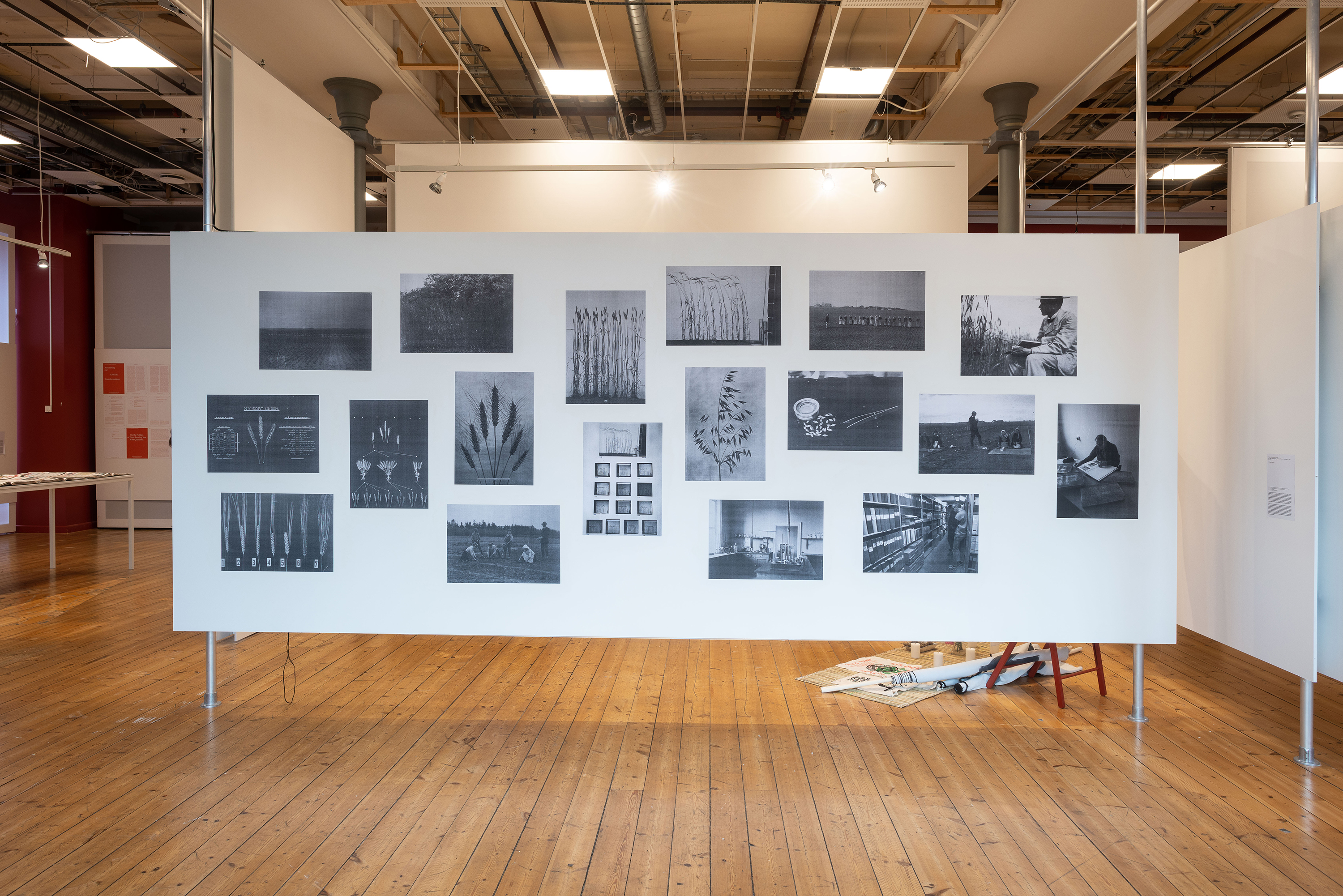
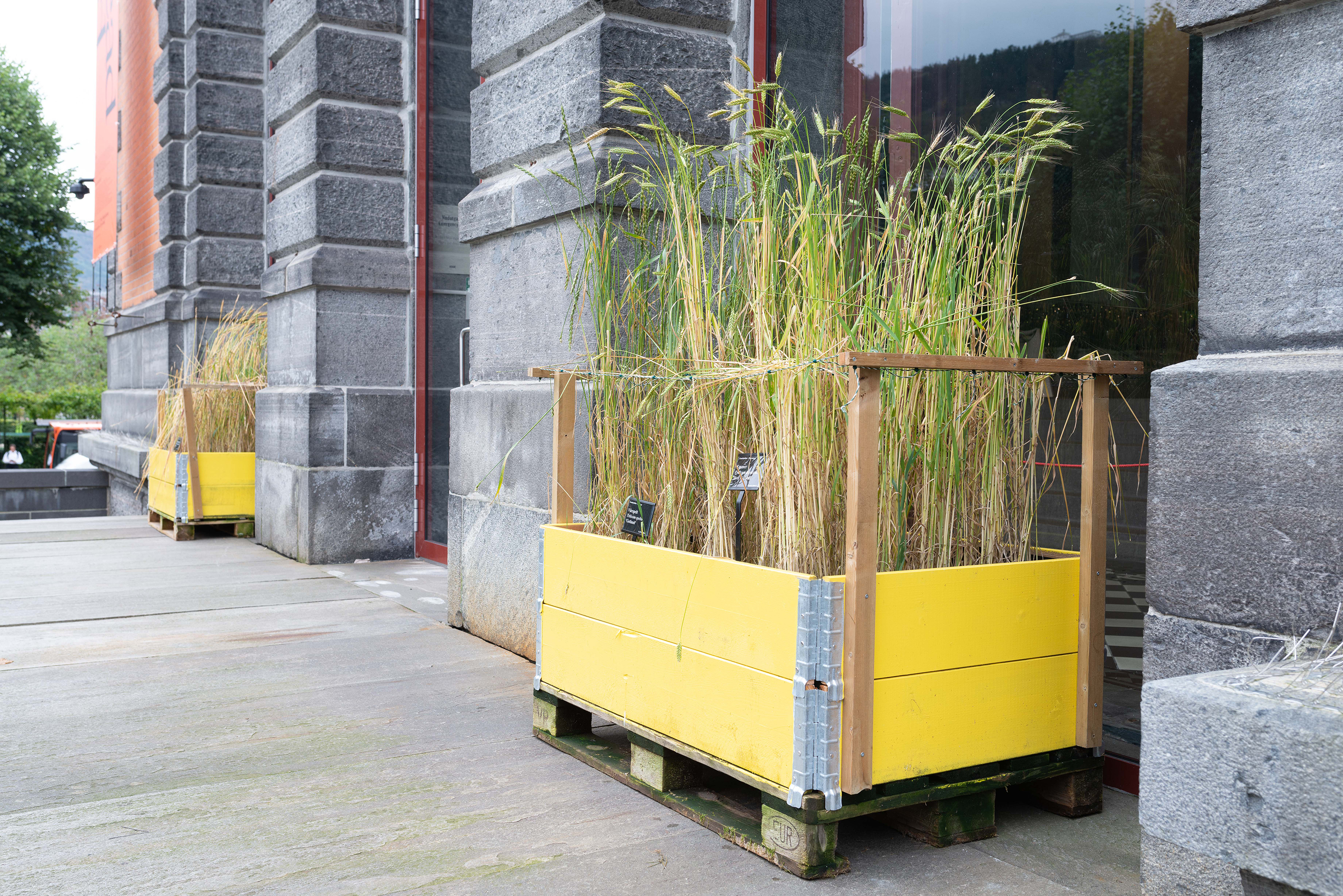
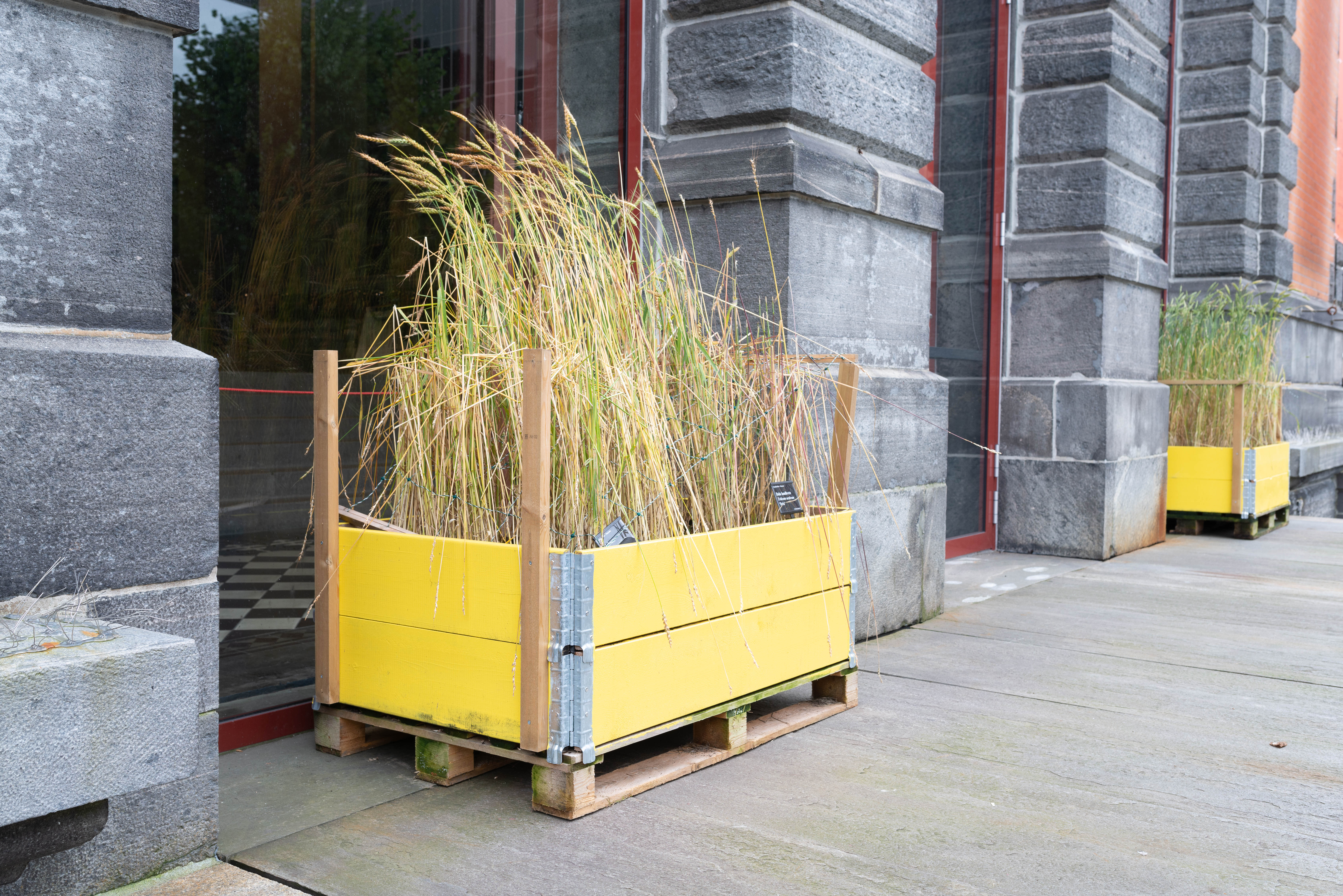
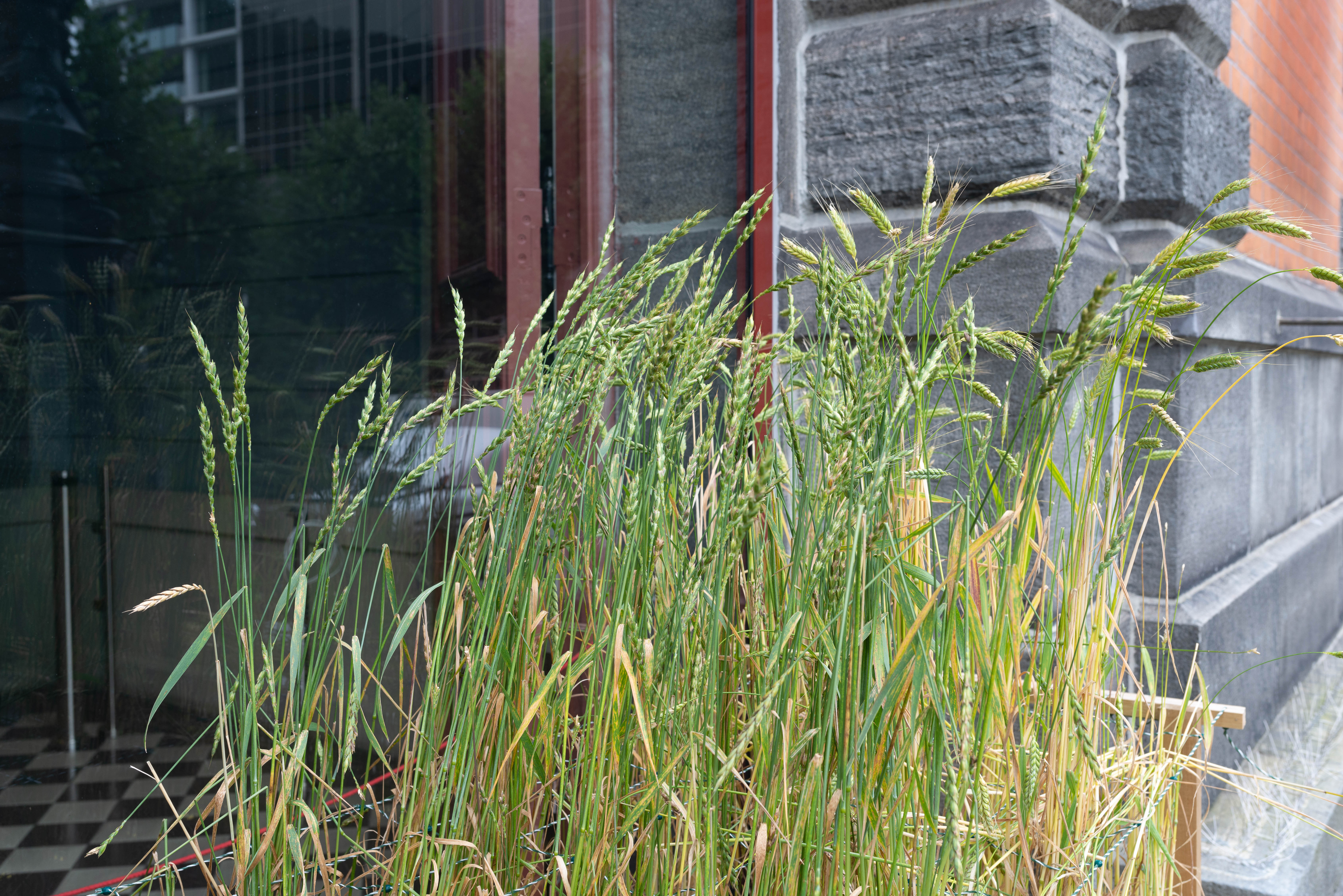

I. Installation at Bergen Assembly, 2019. Film on organic, participatory grain breeding. 34 minutes.
II. Installation at Bergen Assembly, 2019. The Swedish Seed Association (Sveriges utsädesförening), early 1900s, documenting the invention of ‘pure line’ plant breeding.
III.Installation at Bergen Assembly, 2019. Cultivation of heritage grains regenerated by Hans Larsson, in custody of the user-seedbank of Spesialkorn, Norway.
Cultivated Stories considers the implementation of monocultural techniques in farming and their roots in ideology. The first part of this work is a set of photographic reproductions documenting early attempts to breed plants into monocultures. So-called ‘pure line’ breeding was implemented by the Swedish Seed Association (Sveriges utsädesförening), founded in 1886. The technique had been invented by the Danish botanist Wilhelm Johannsen (1857 –1927), while working at the chemical laboratory of the Carlsberg Breweries in Copenhagen. This laboratory had developed single strain yeast, which enabled a controlled fermentation process without the risk of beer turning sour. Following the profitability of this technique, Johannsen began experimenting on the equivalent to ‘single strains’ in plants. By inbreeding peas for several generations, it was possible to empty them from almost any genetic variation. This resulted in plants that were clones, however it was understood that they had reached the ‘original’ or ‘pure’ form of the plant. During several decades, the Swedish Seed Association bred uniform grains following Johannsen’s technique, establishing what today is called ‘modern plant breeding’, and which is protected by legislation. Since the UPOV convention for the legislation of restrictions on intellectual property for new plants of 1962, only uniform cultivars are allowed for commercial cultivation within the countries that have signed the convention, of which EU belongs.
The film documents the work of the Swedish plant scientist Hans Larsson, restoring and restituting remaining varieties of genetically diverse heritage grain. With the implementation of modern plant breeding on a global scale, the diversity in grains – cultivated by farmers breeding them for more than ten thousand years ago – was nearly lost. The genetic variation in plants is crucial for their capacity to adapt to new climates and cultivation conditions. Beginning in the 1990s, Larsson has systematically test grown all remaining varieties in Scandinavia. Selected strains have been further bred and propagated to larger volumes for farmers to cultivate. The restitution of the seeds is organised within the association Allkorn. Heritage grains are genetically too diverse to be permitted for commercial circulation among farmers according to the UPOV convention. Therefore, only as a member of Allkorn or similar associations is it legal to cultivate and exchange heritage grains.
More about the film →
Introduction by curator Nav Haq in the catalogue MONOCULTURE – A Recent History, ,2020.
Cultivating Stories has further been presented at Actually, the Dead Are Not Dead. Württembergischer Kunstverein Stuttgart, 2020 - 2021; Monoculture, A Recent History. M HKA – Museum of Contemporary Art Antwerp. Belgium, 2020 - 2021; Floraphilia. Revolution of Plants, and at The Biennale of Warsaw, Poland, 2019, among other places.
